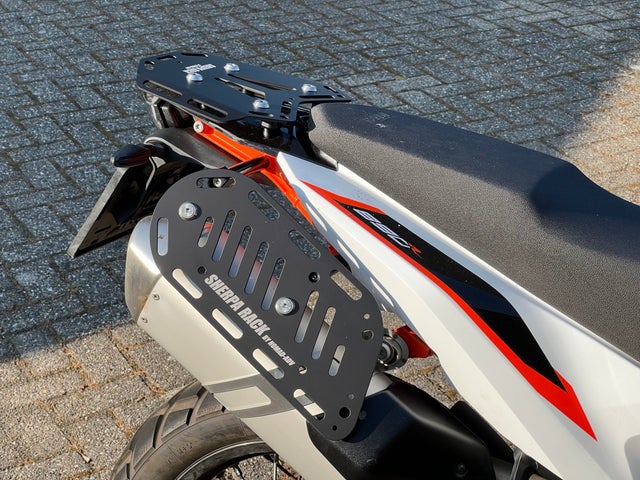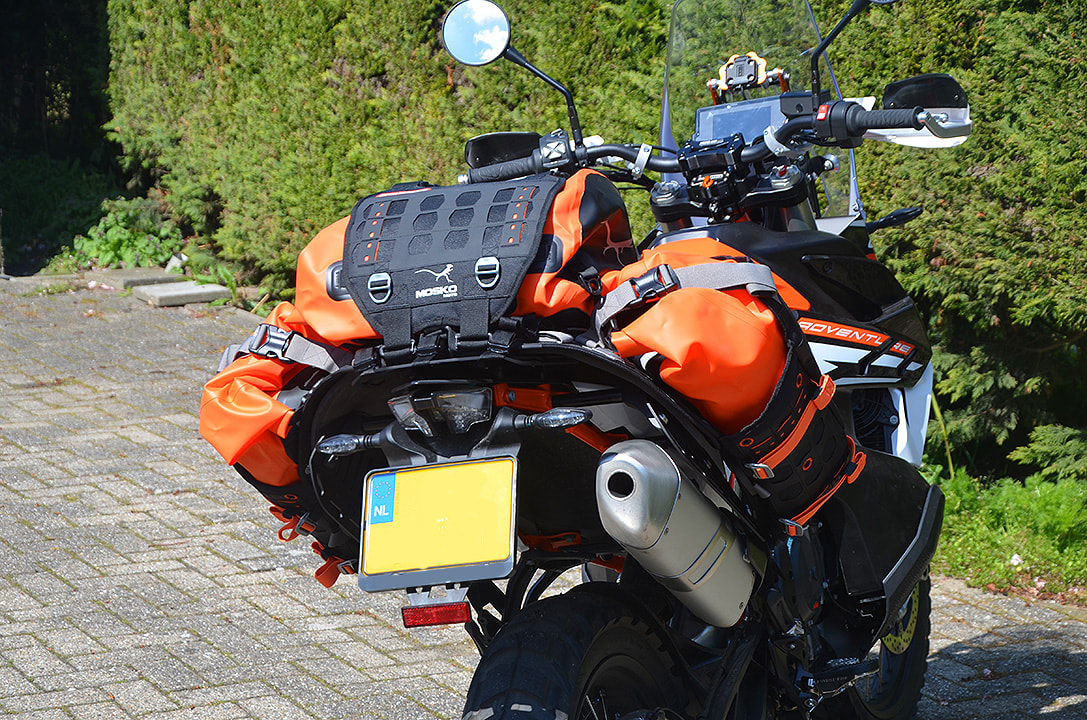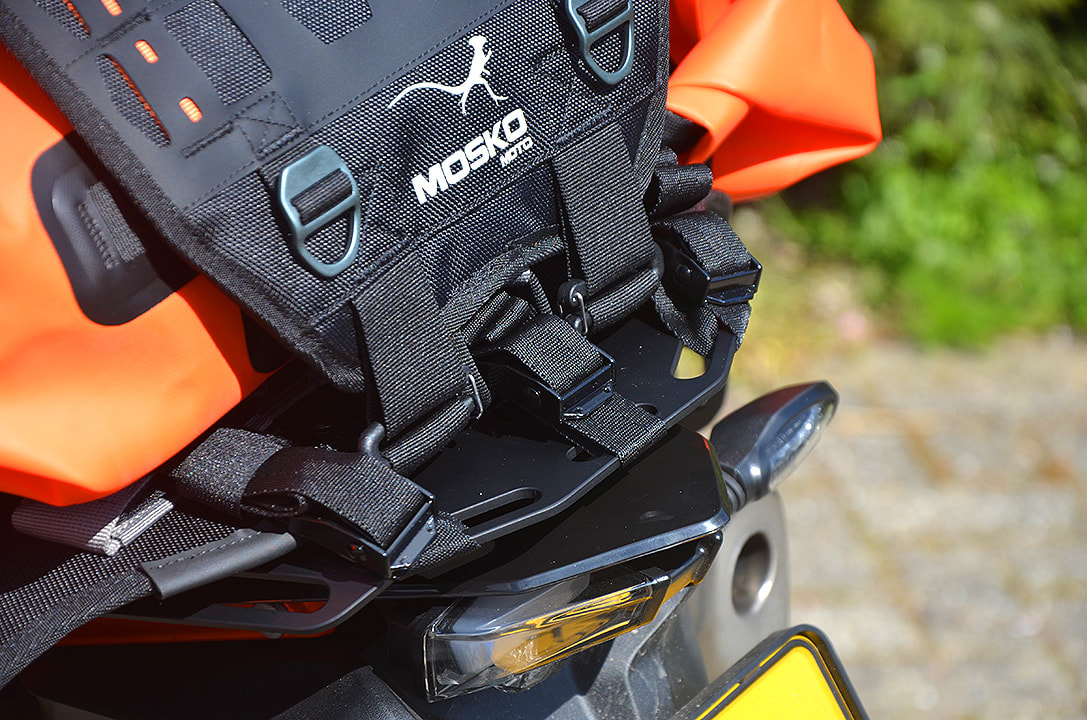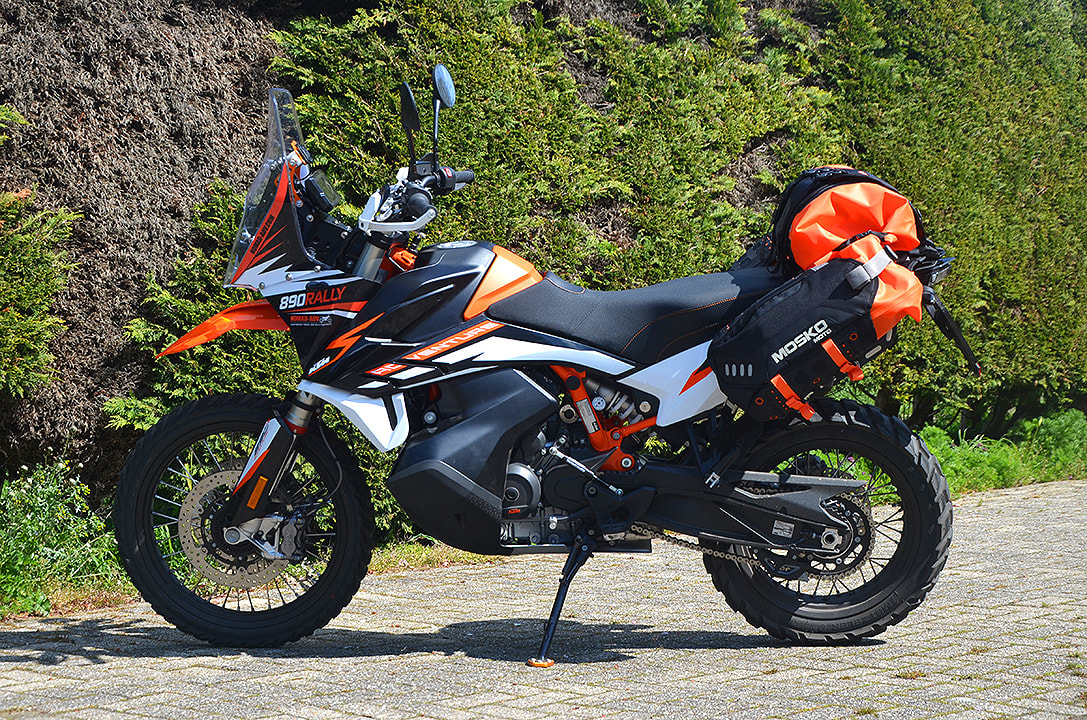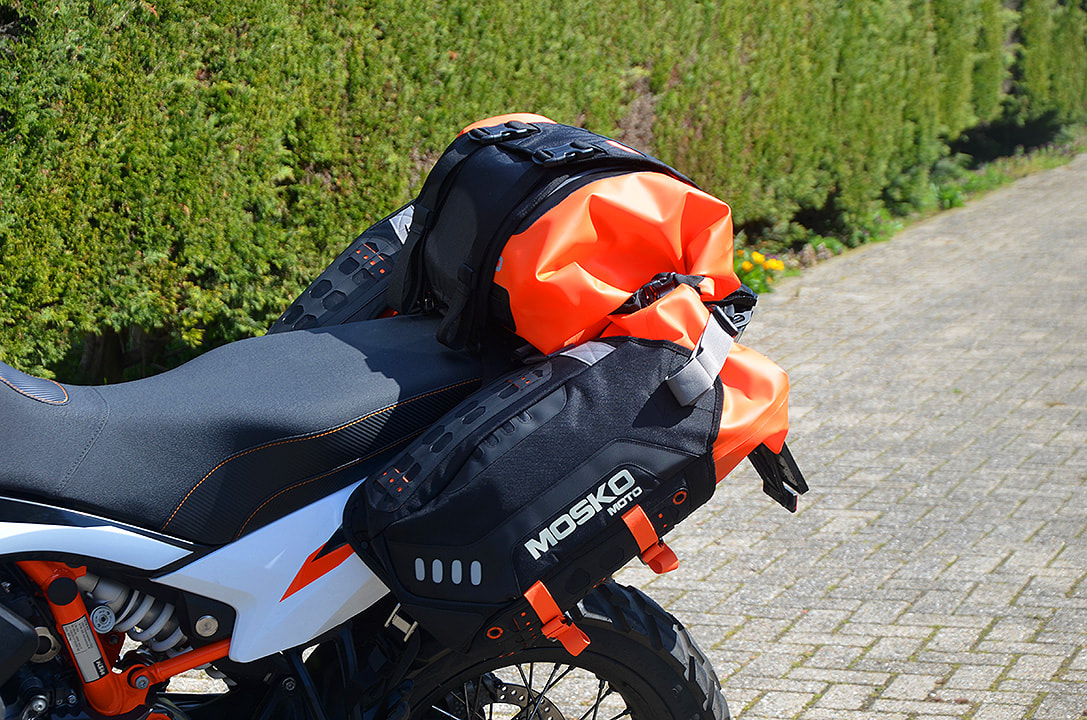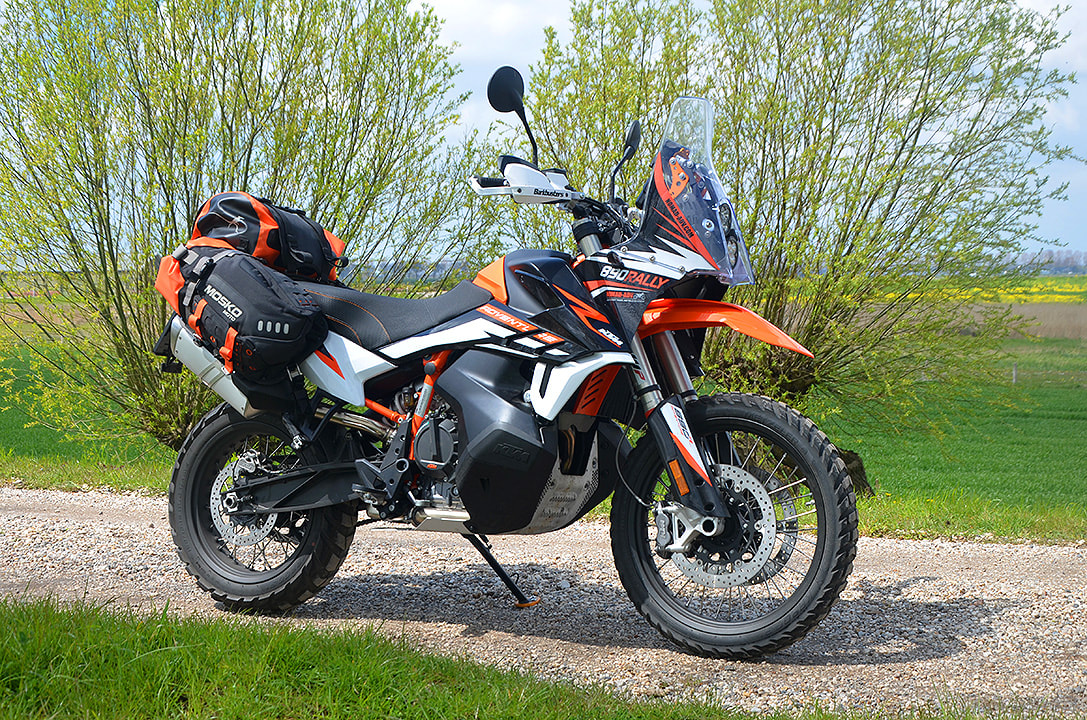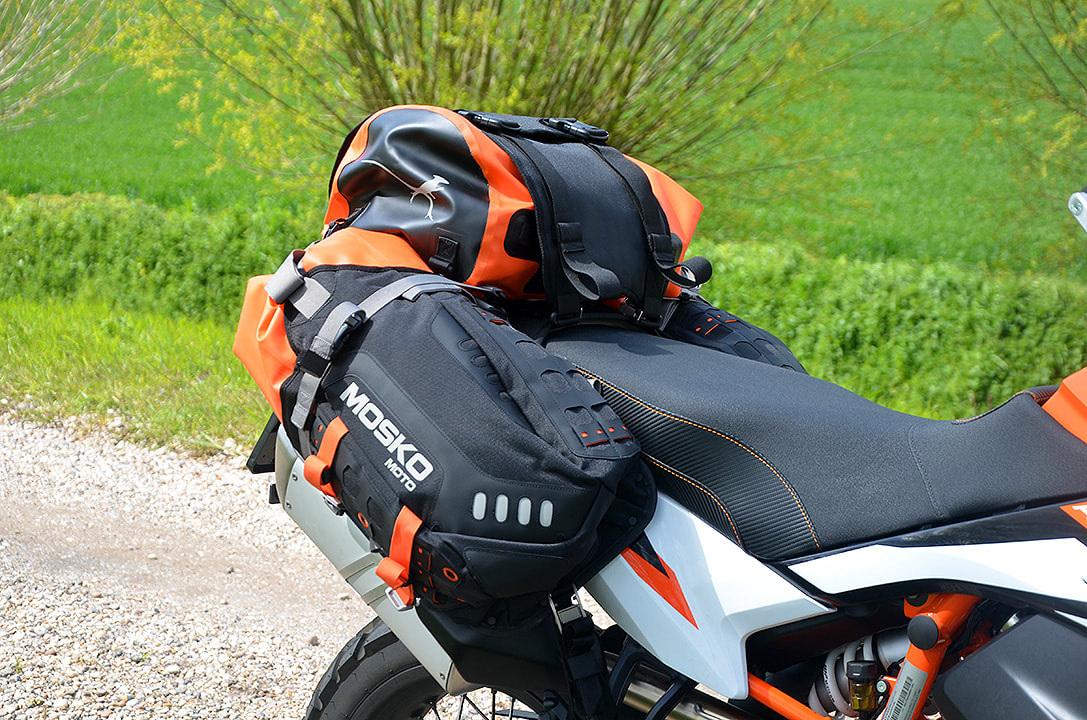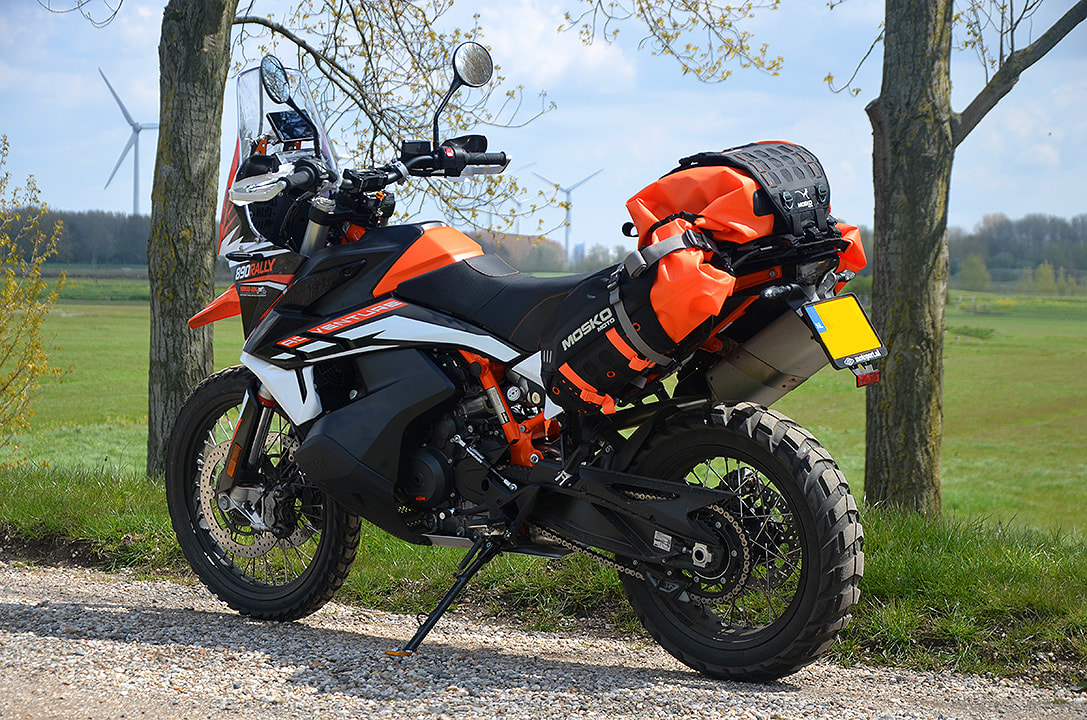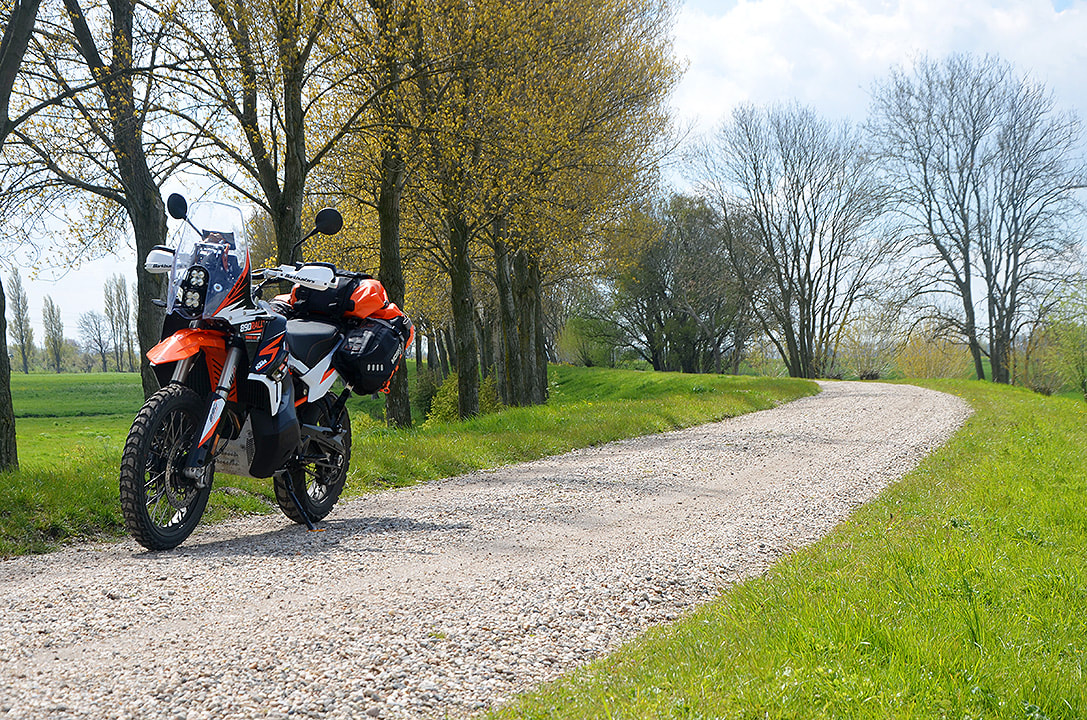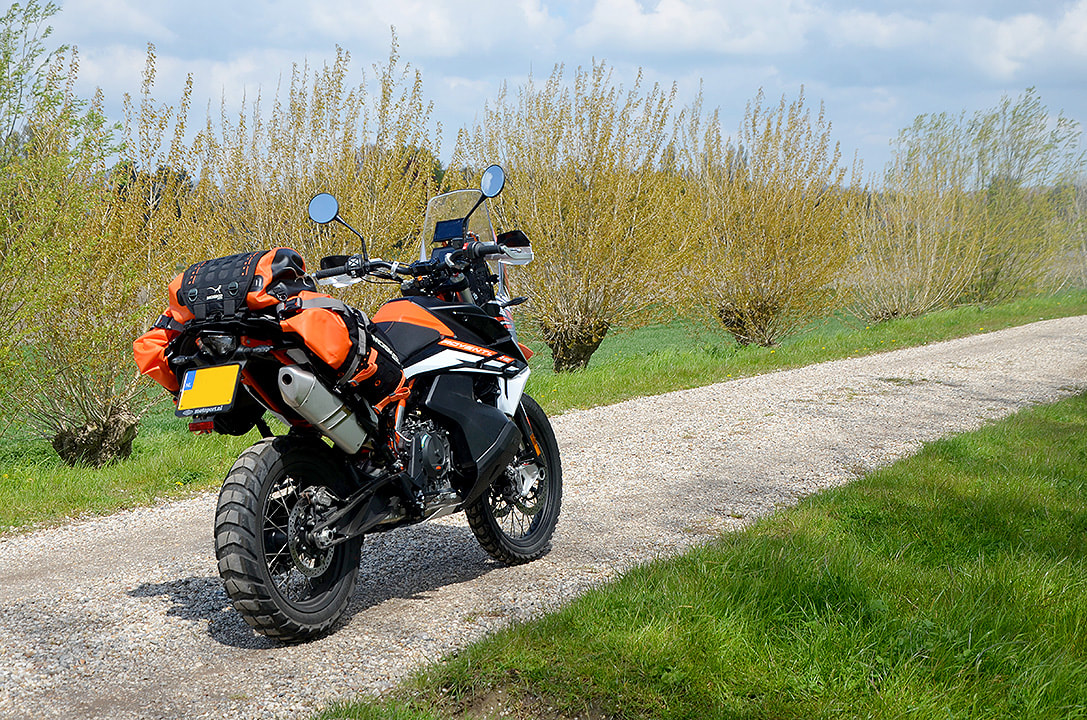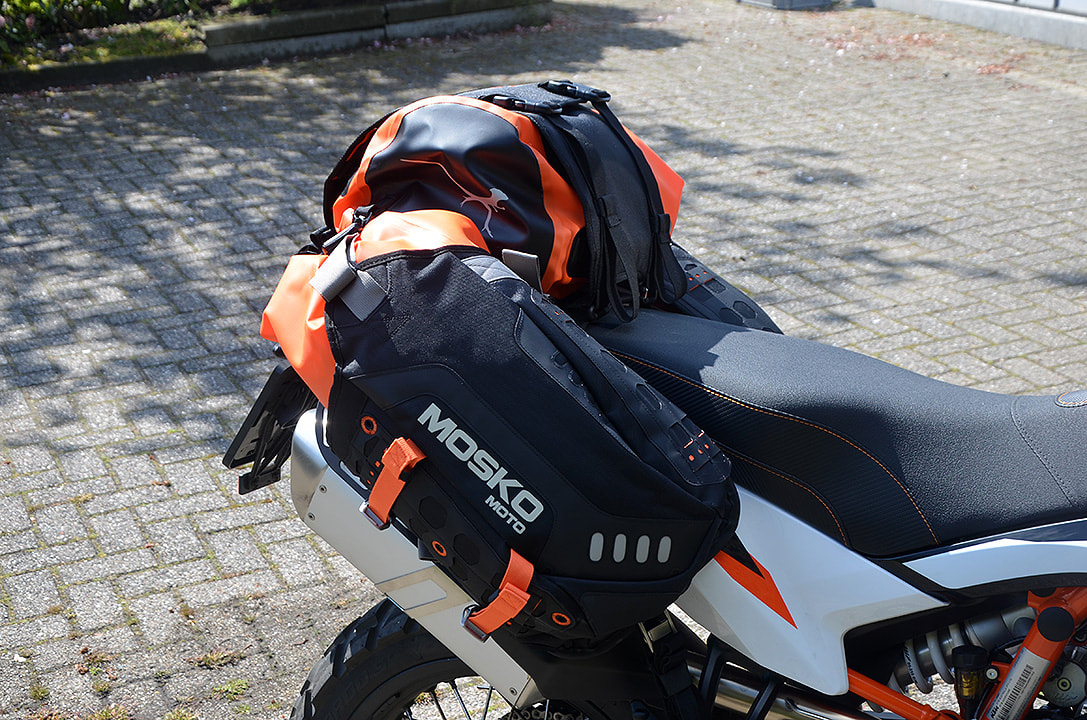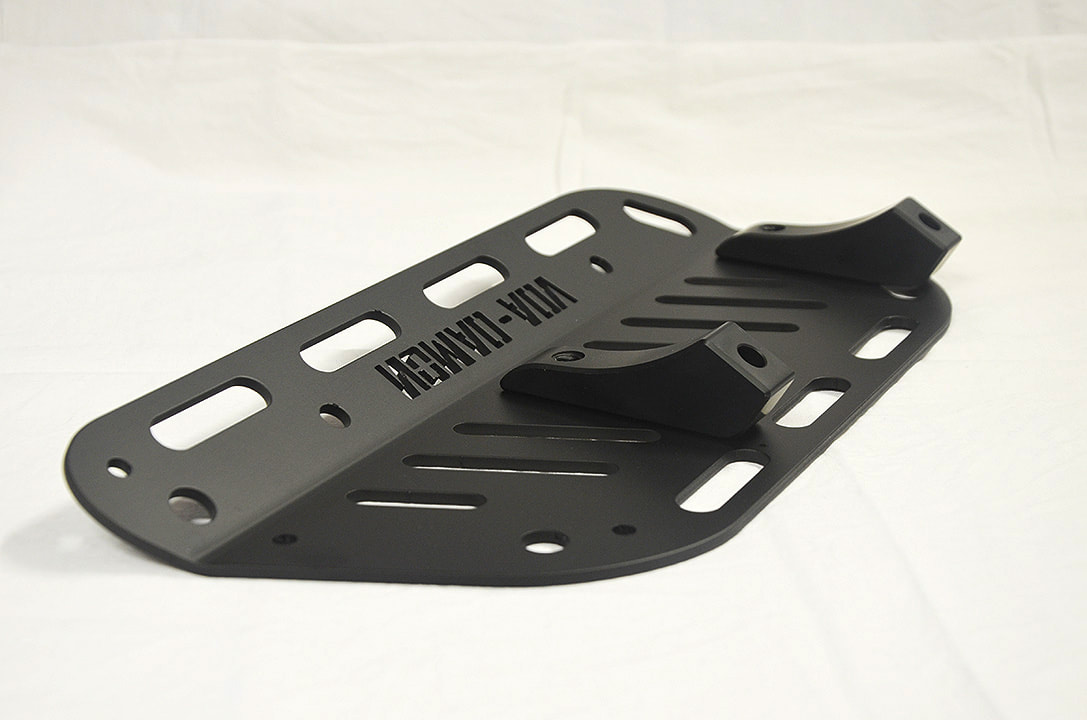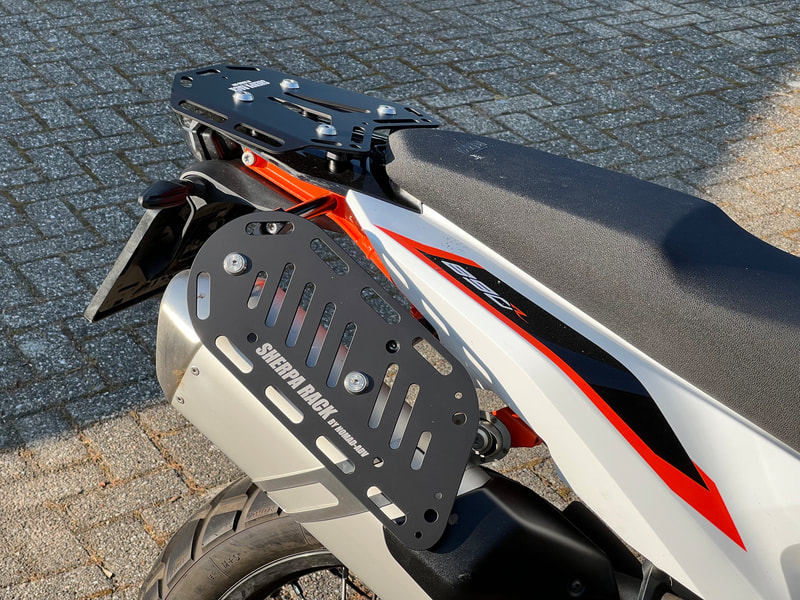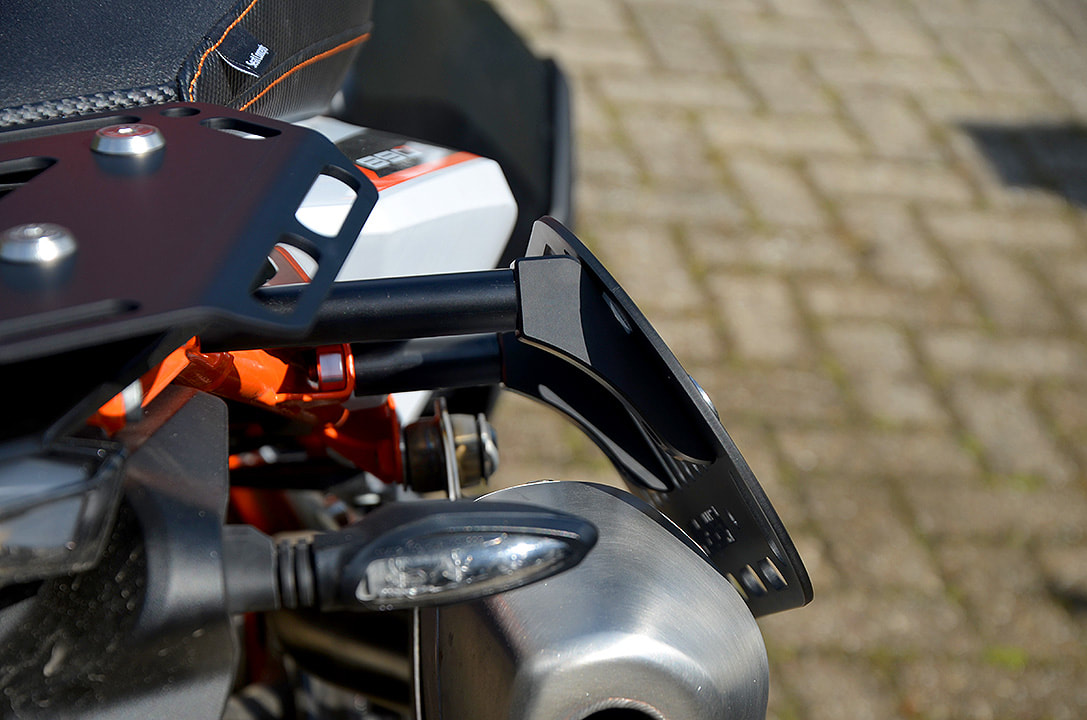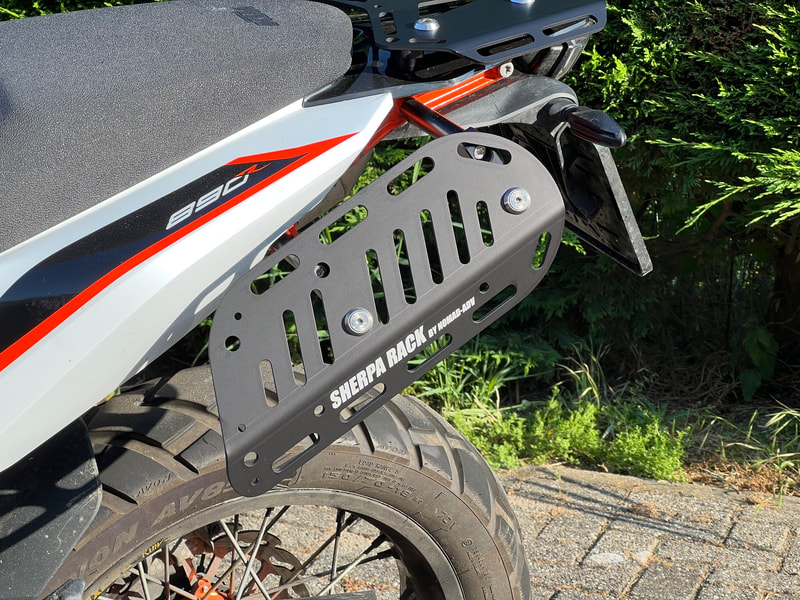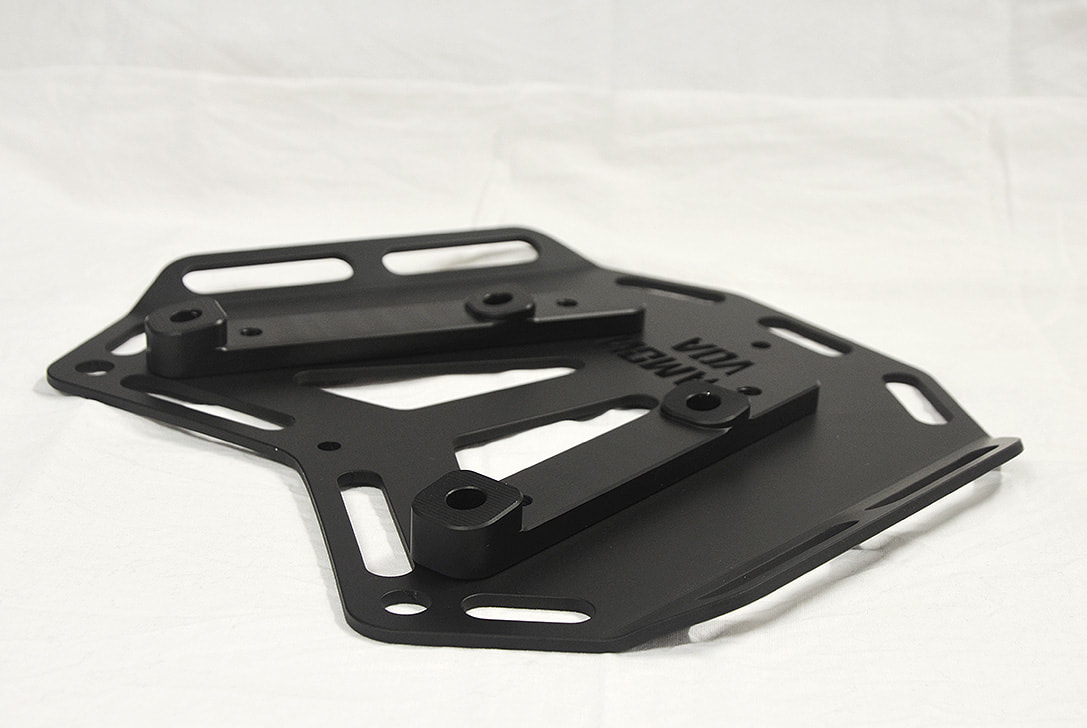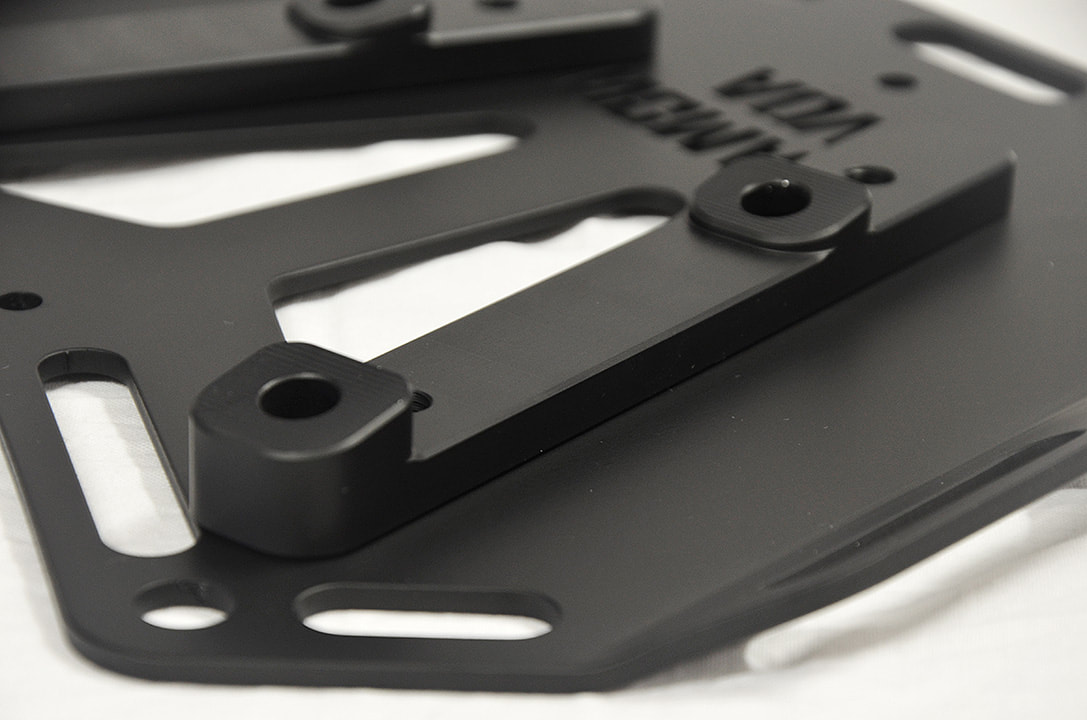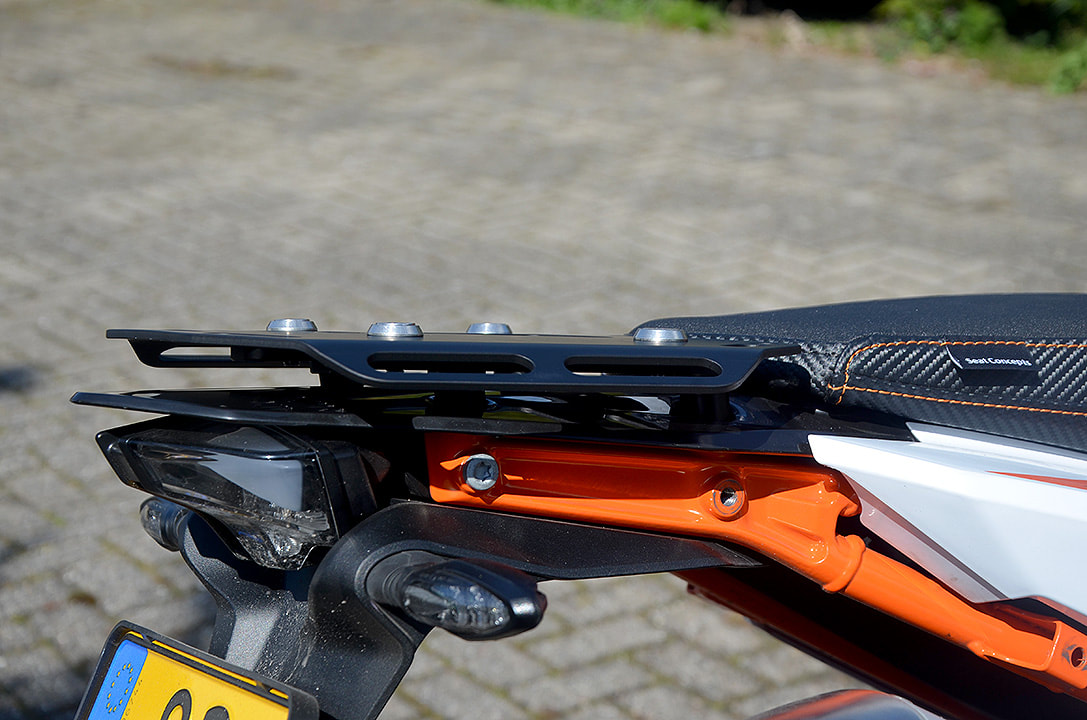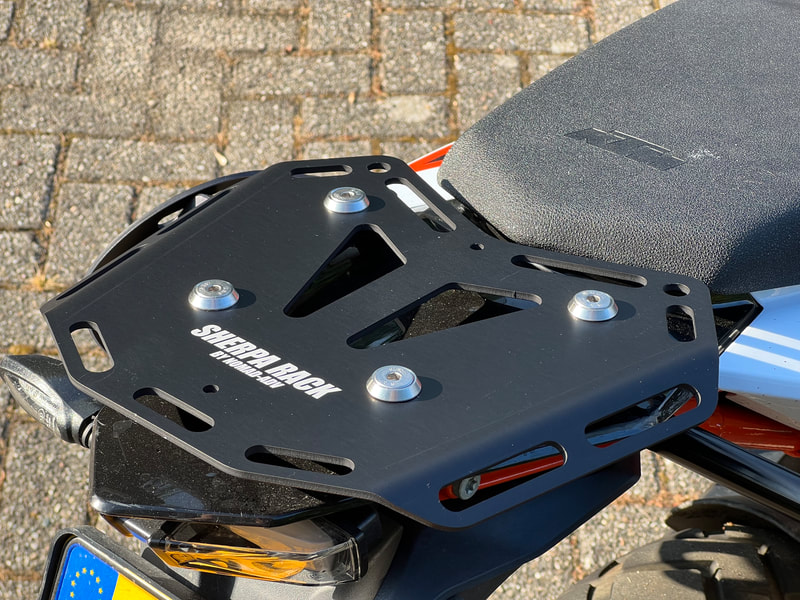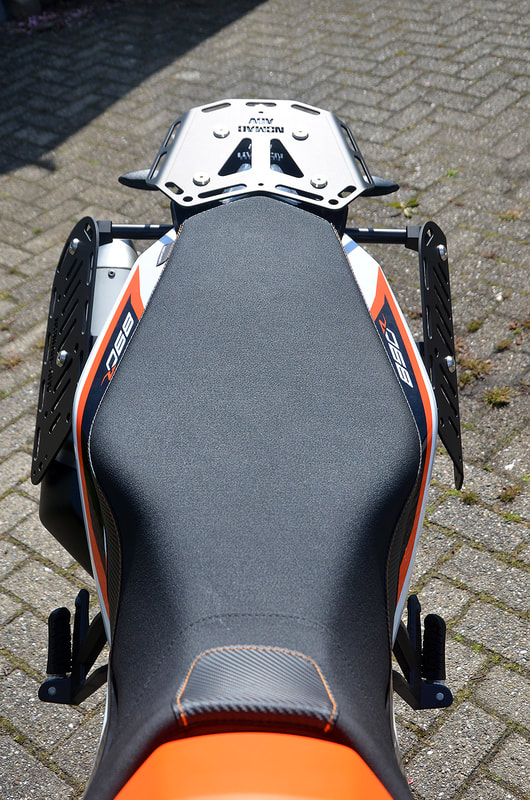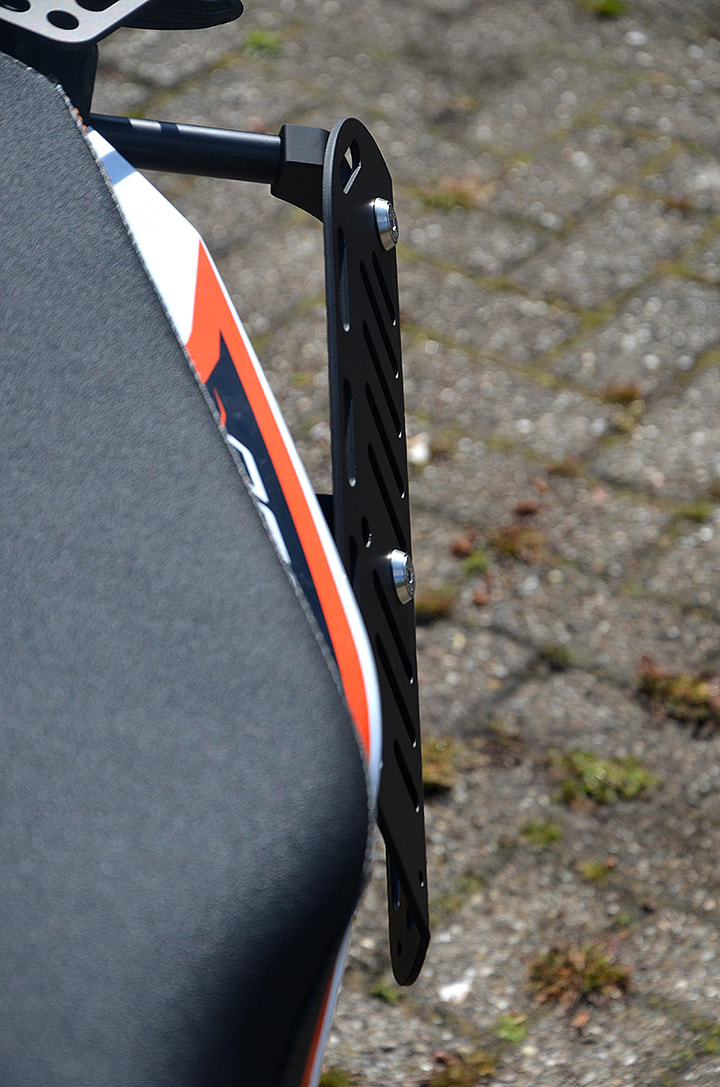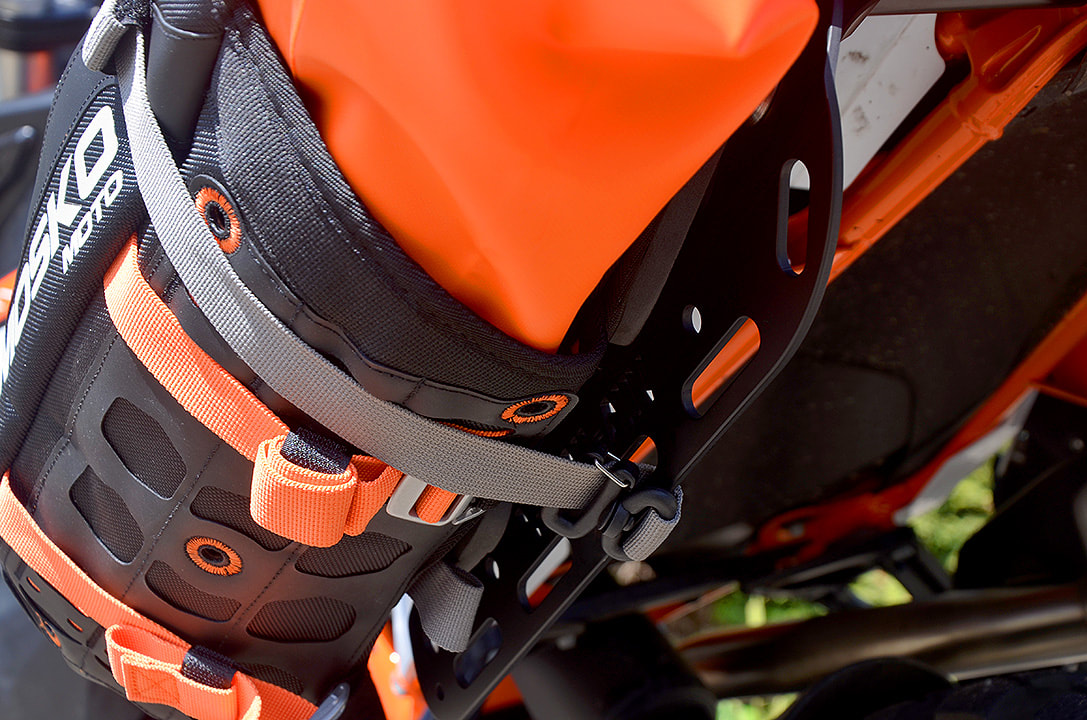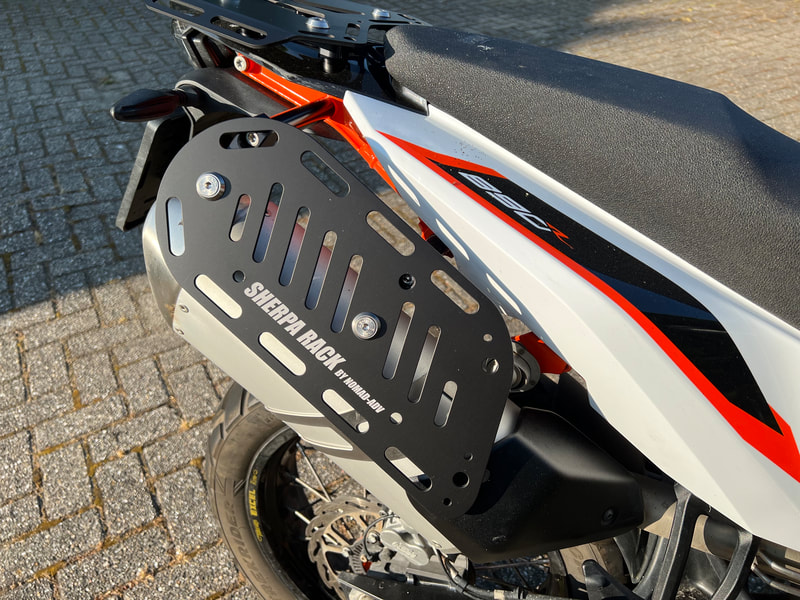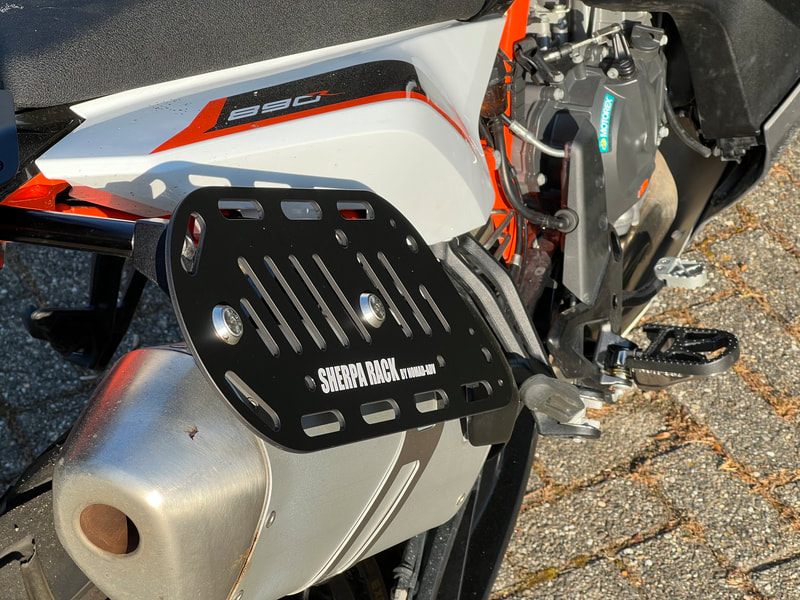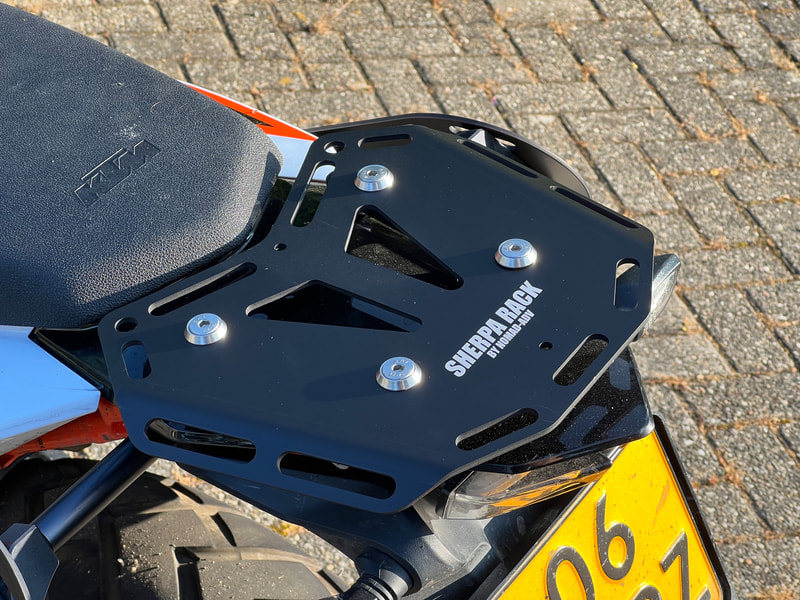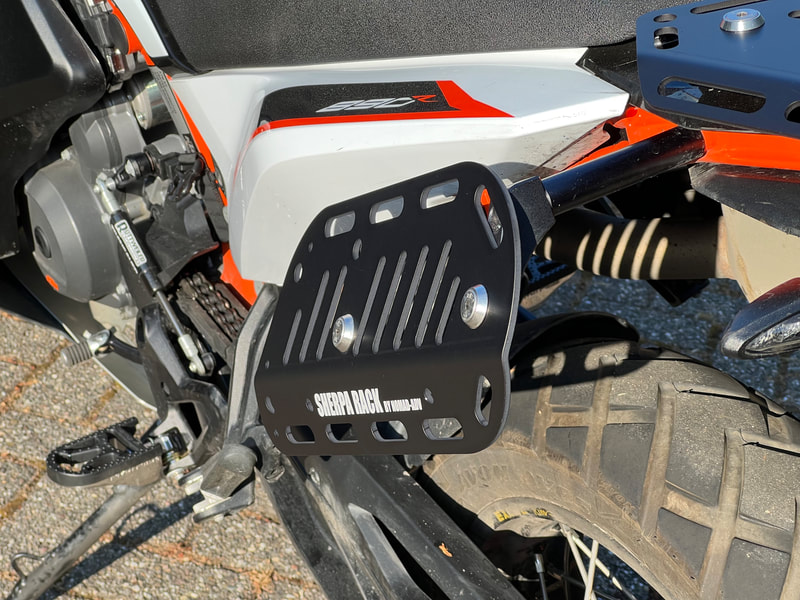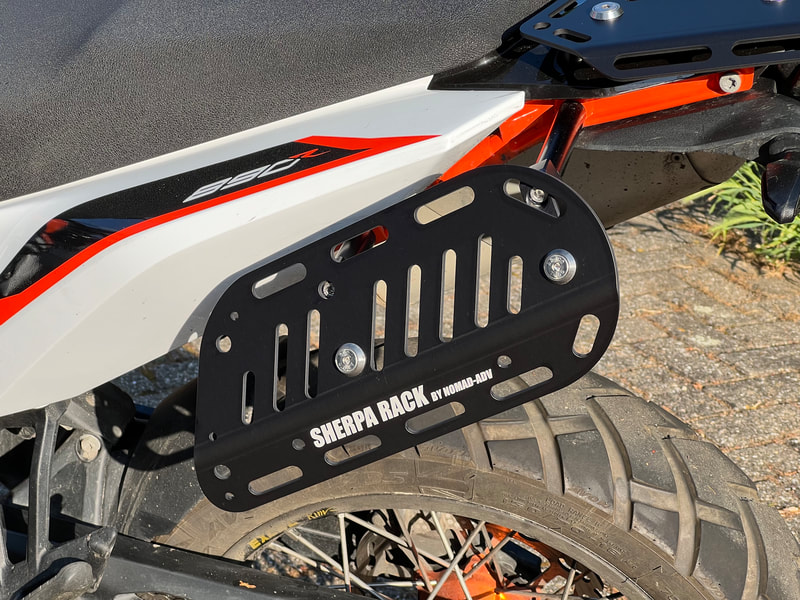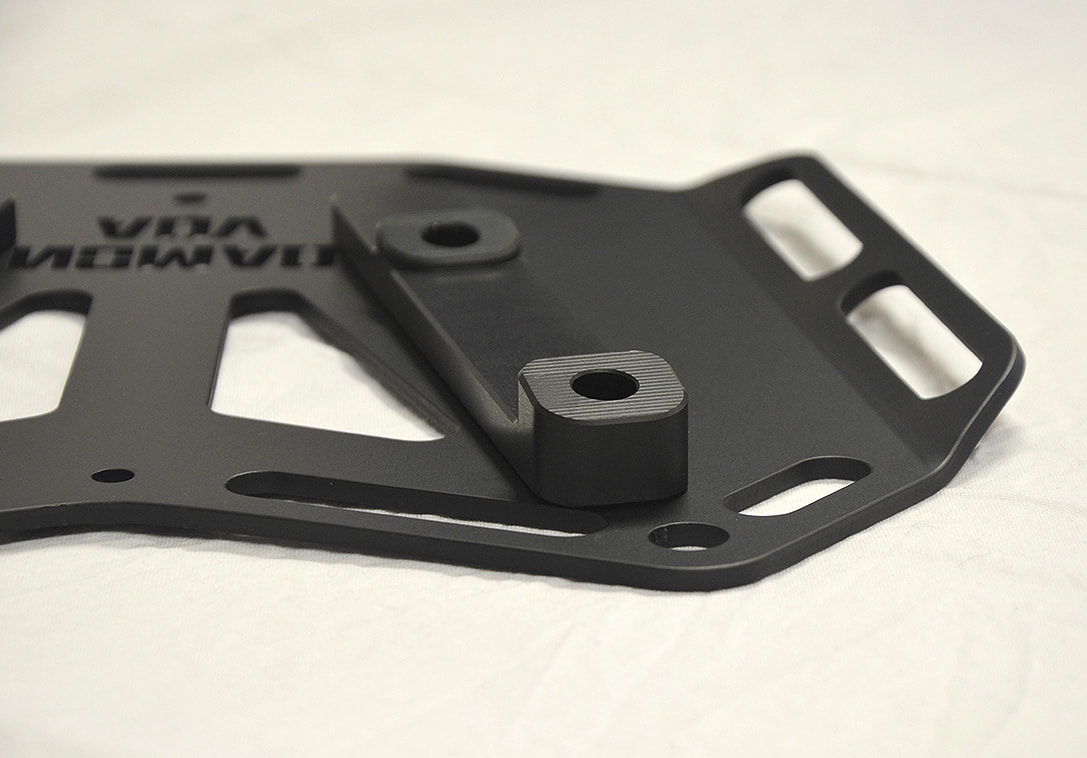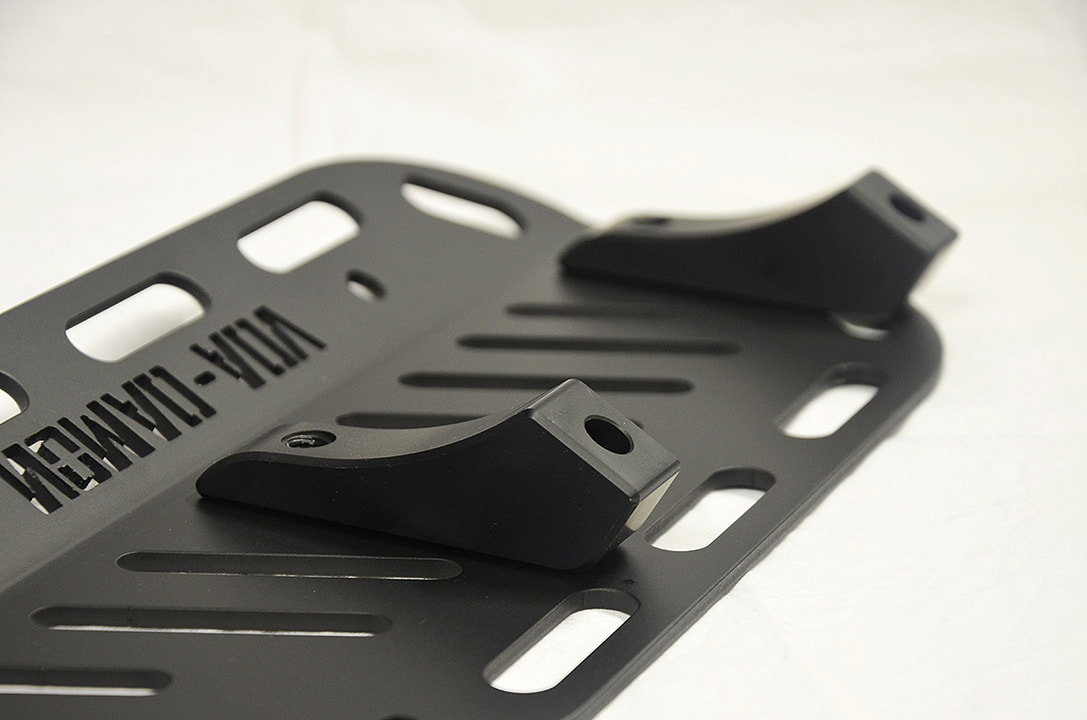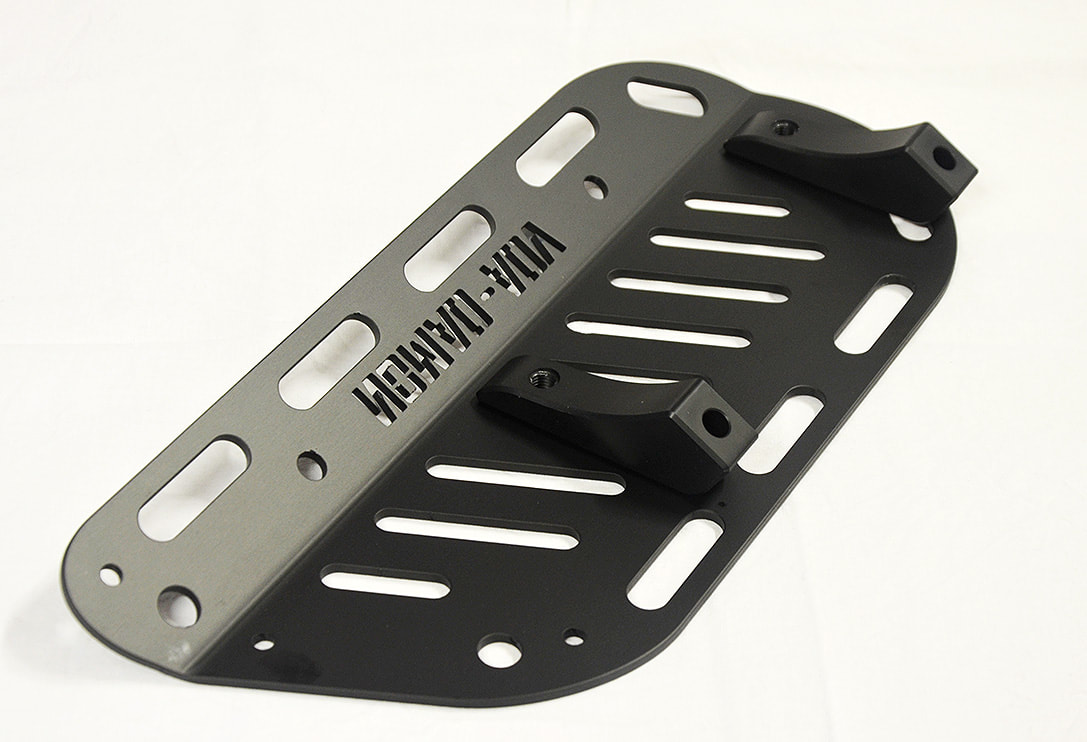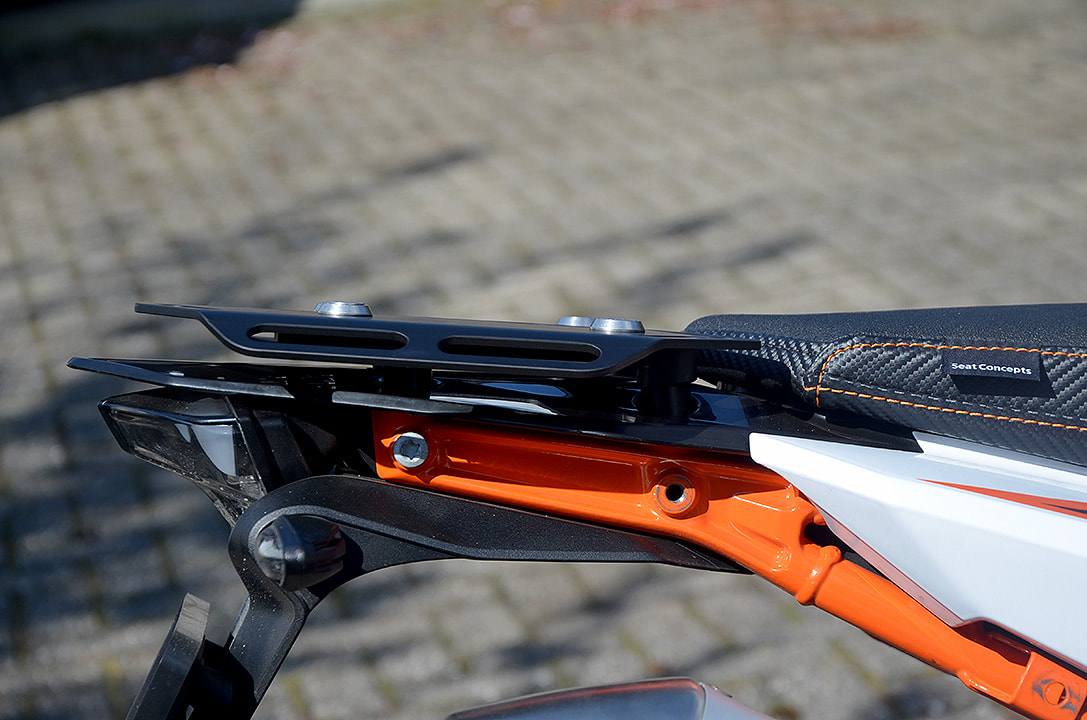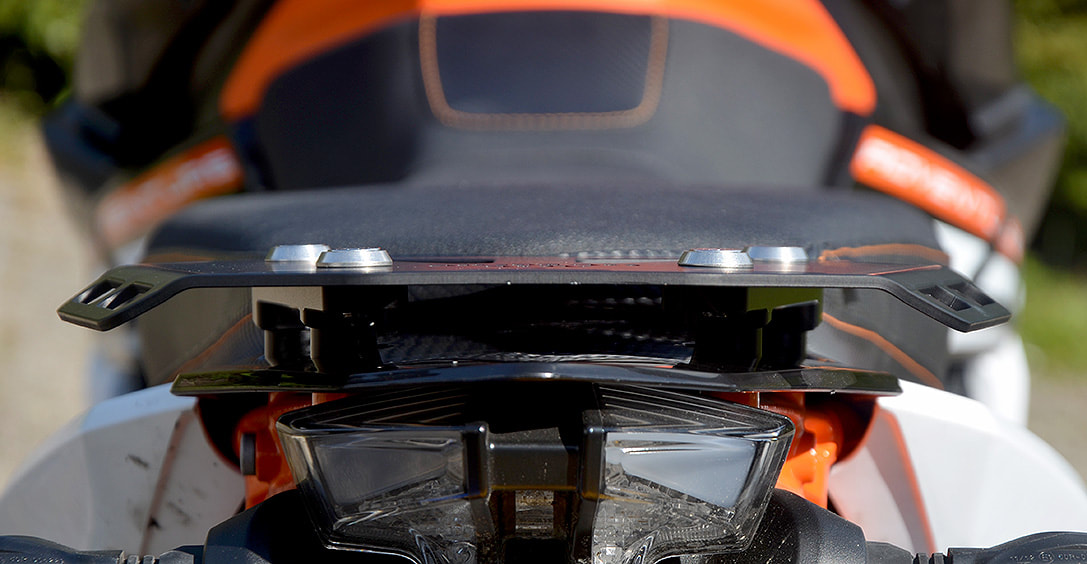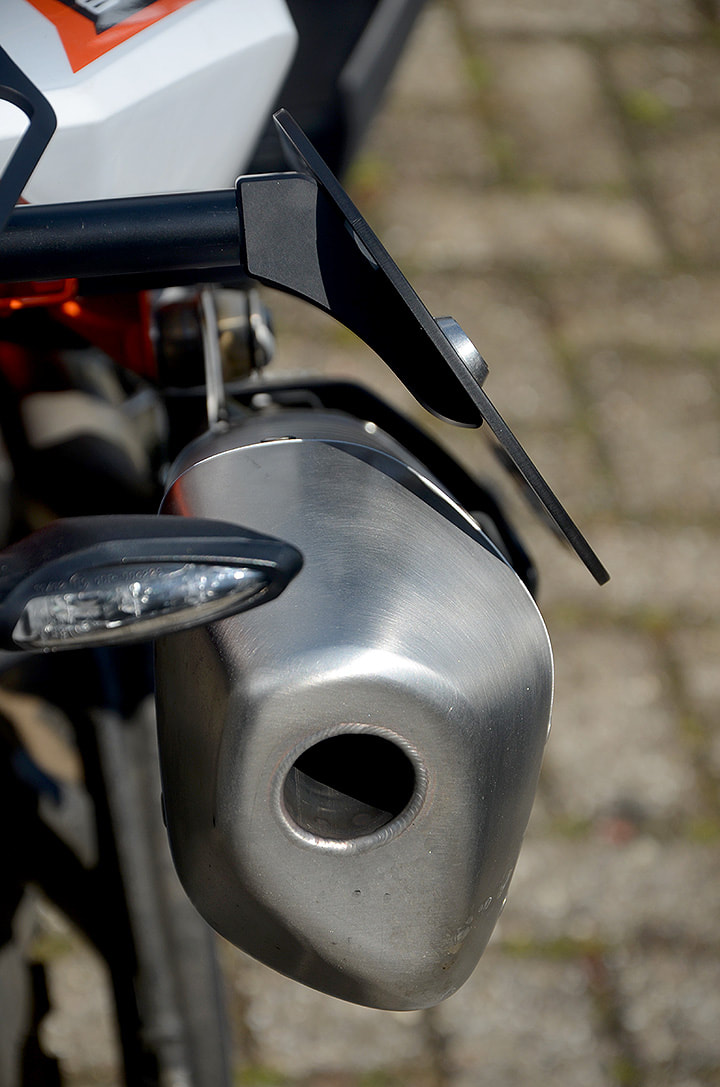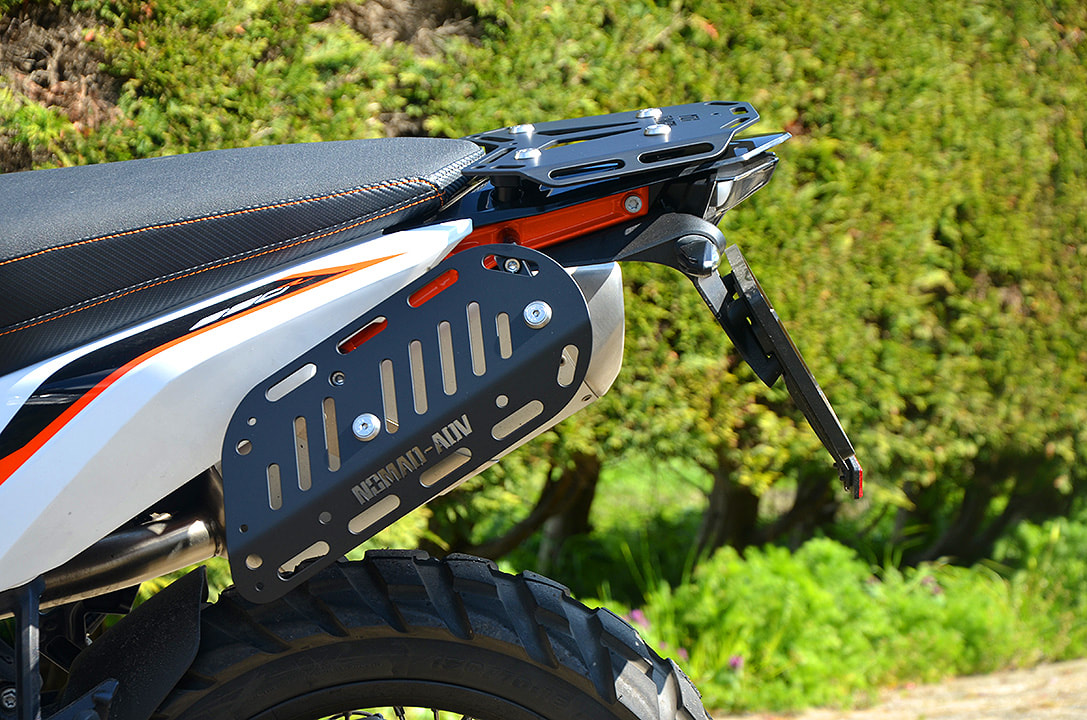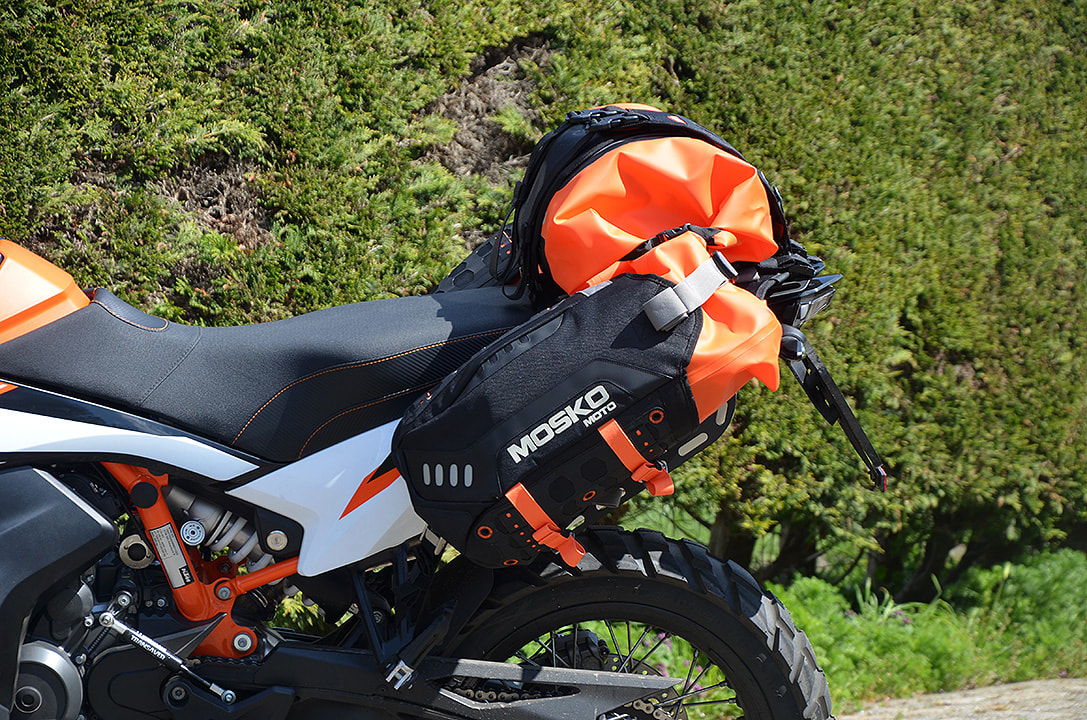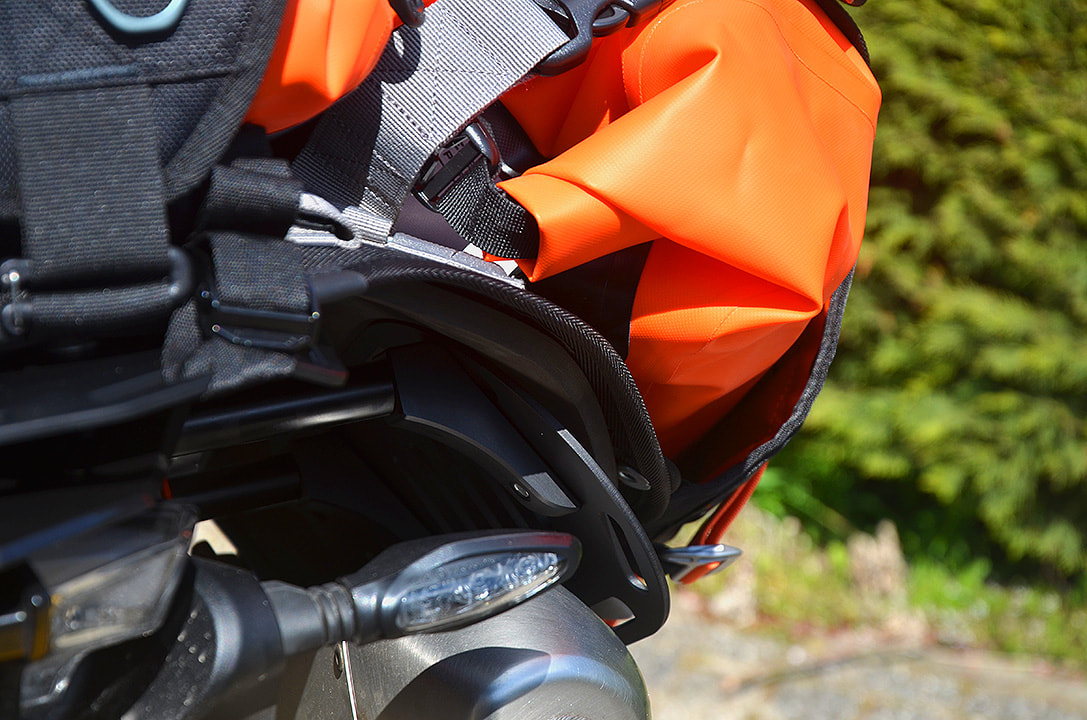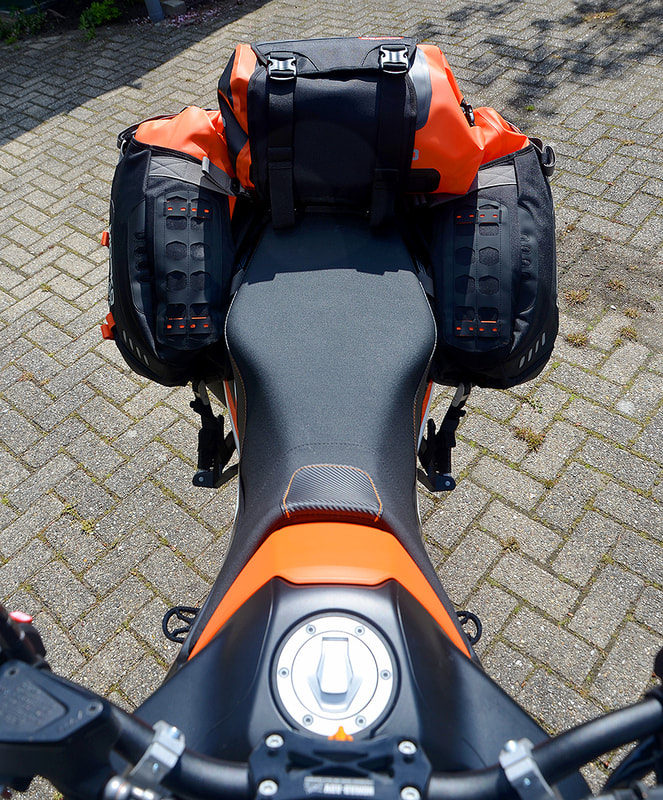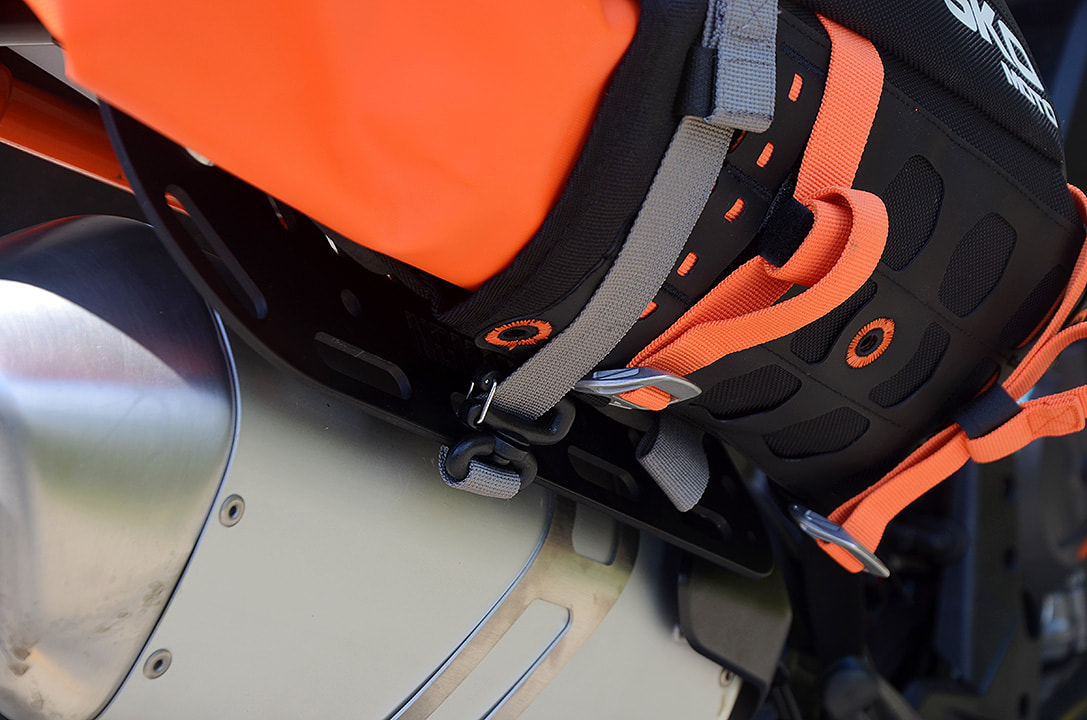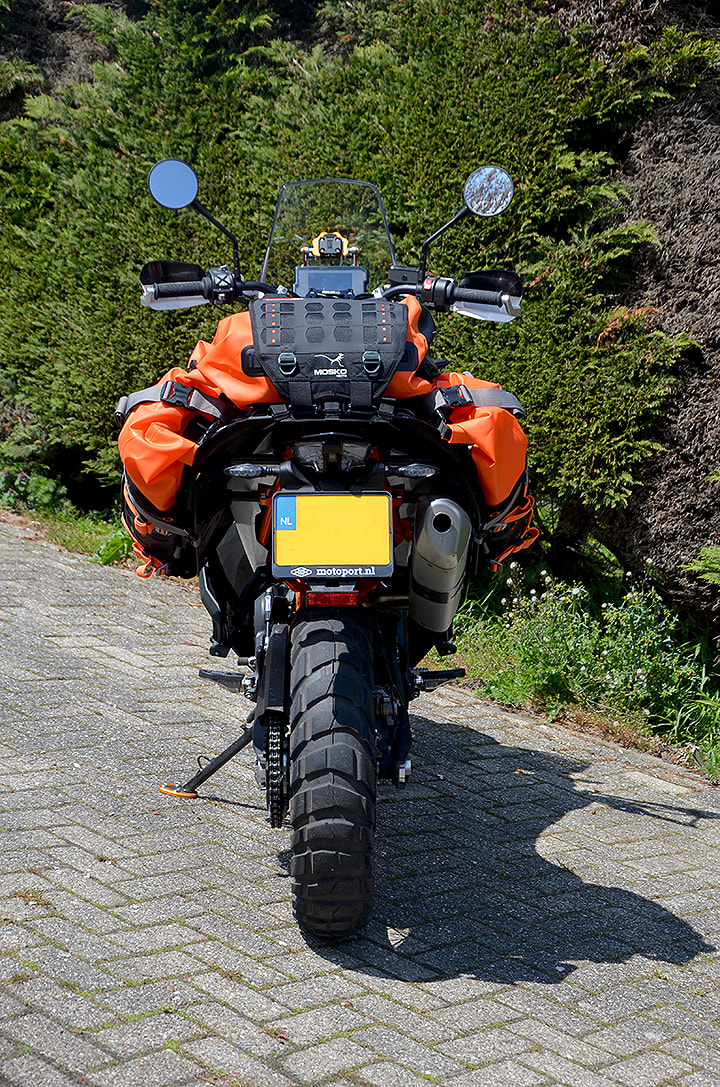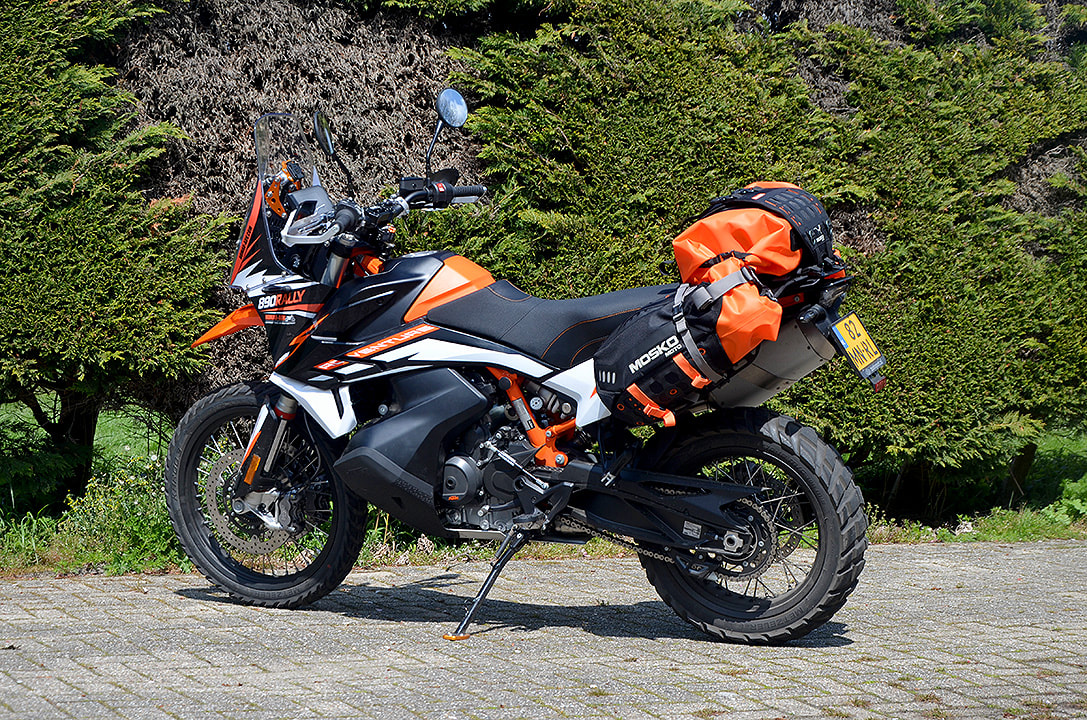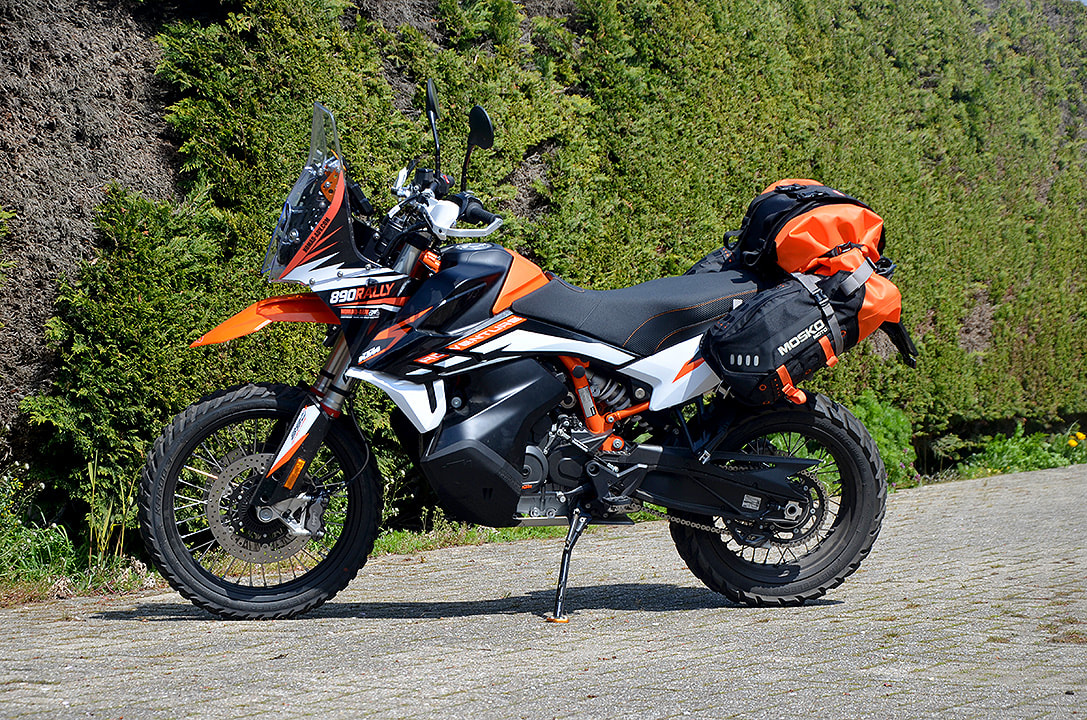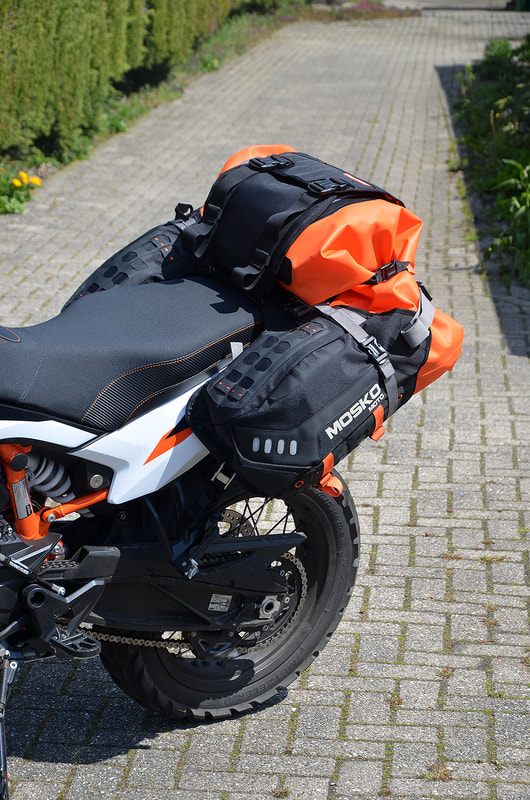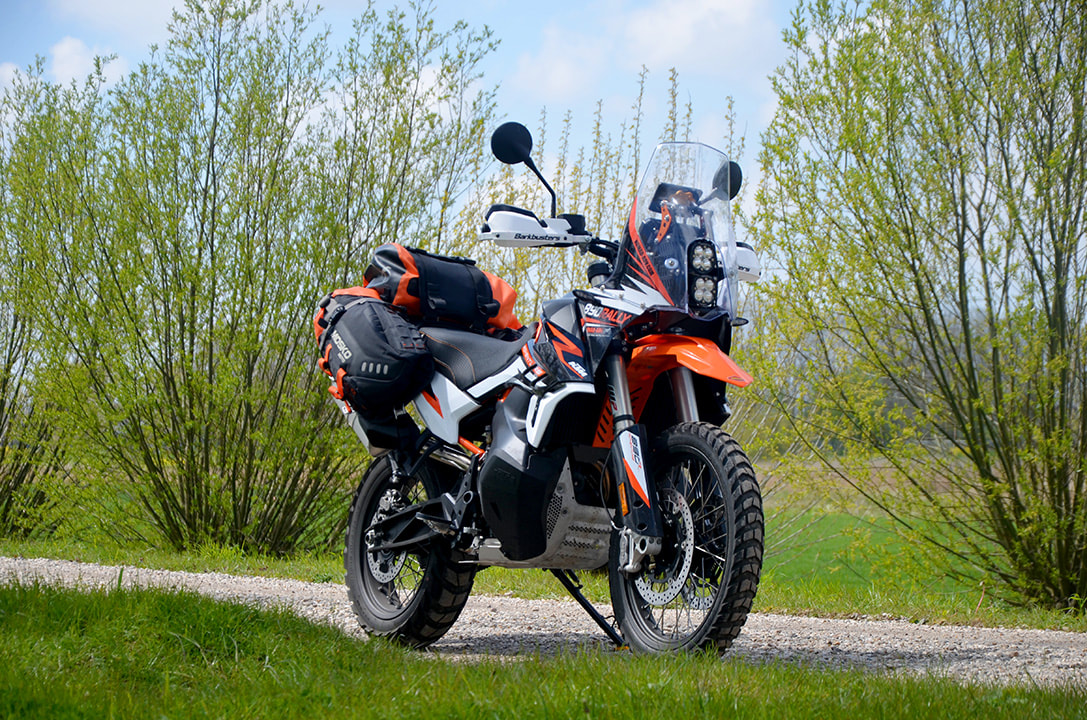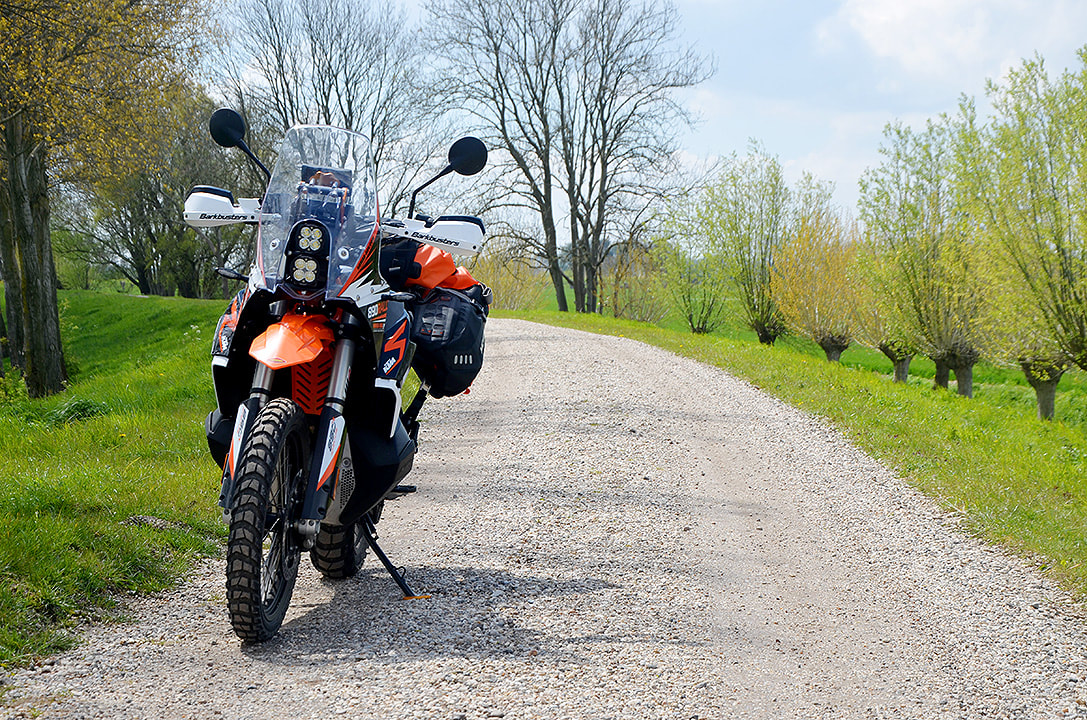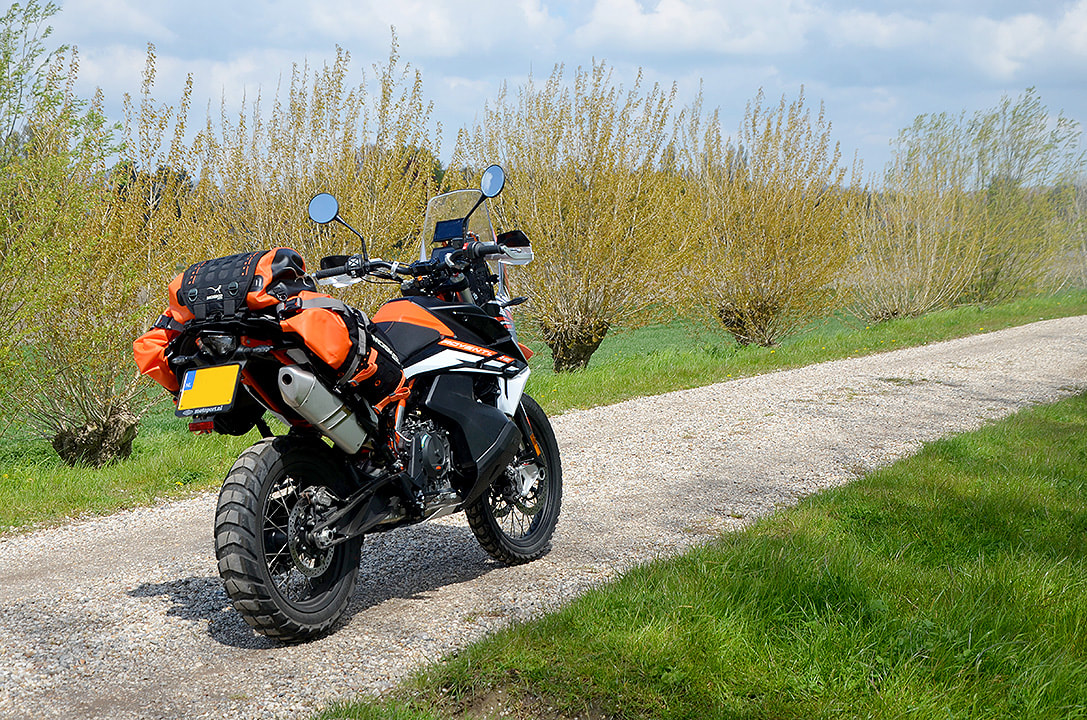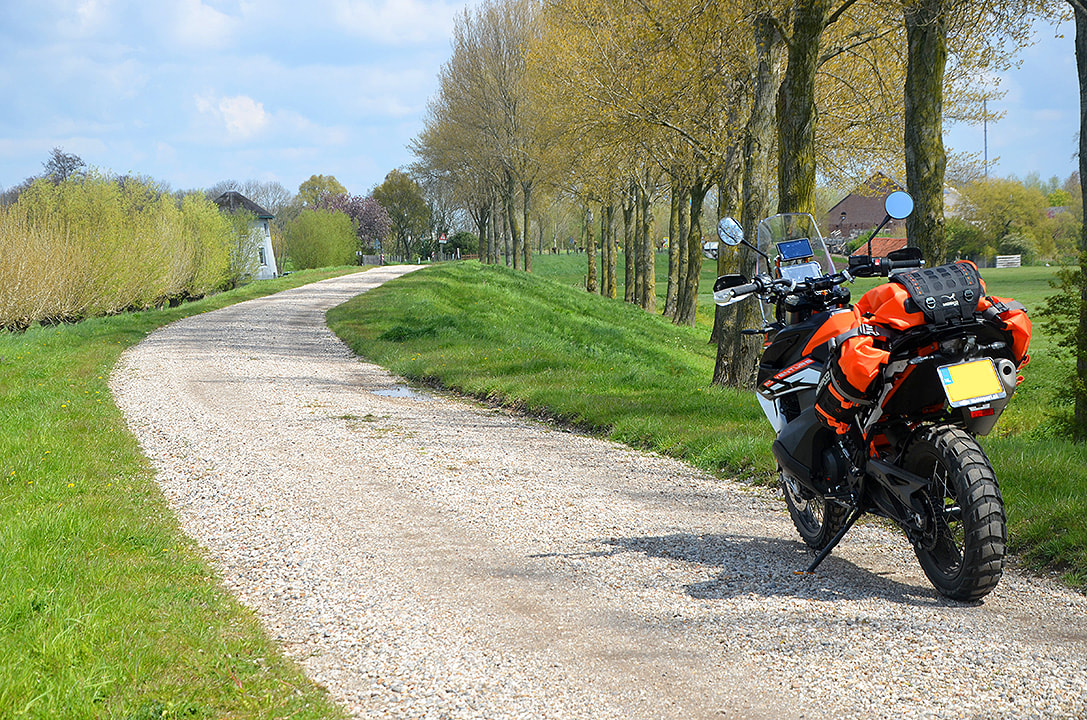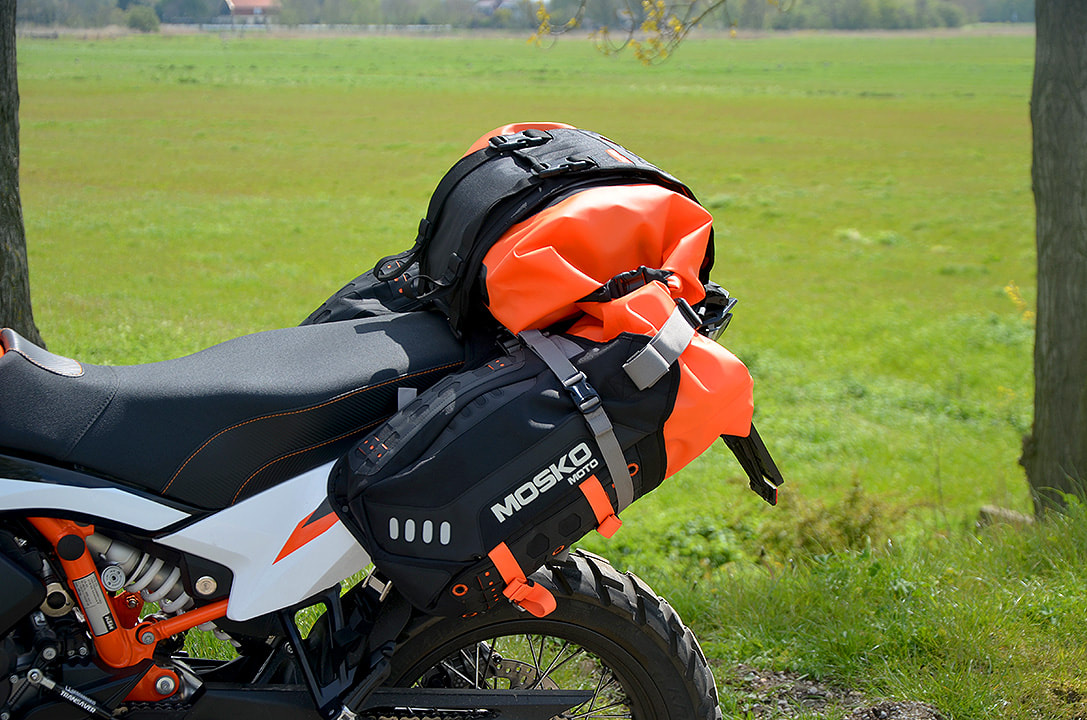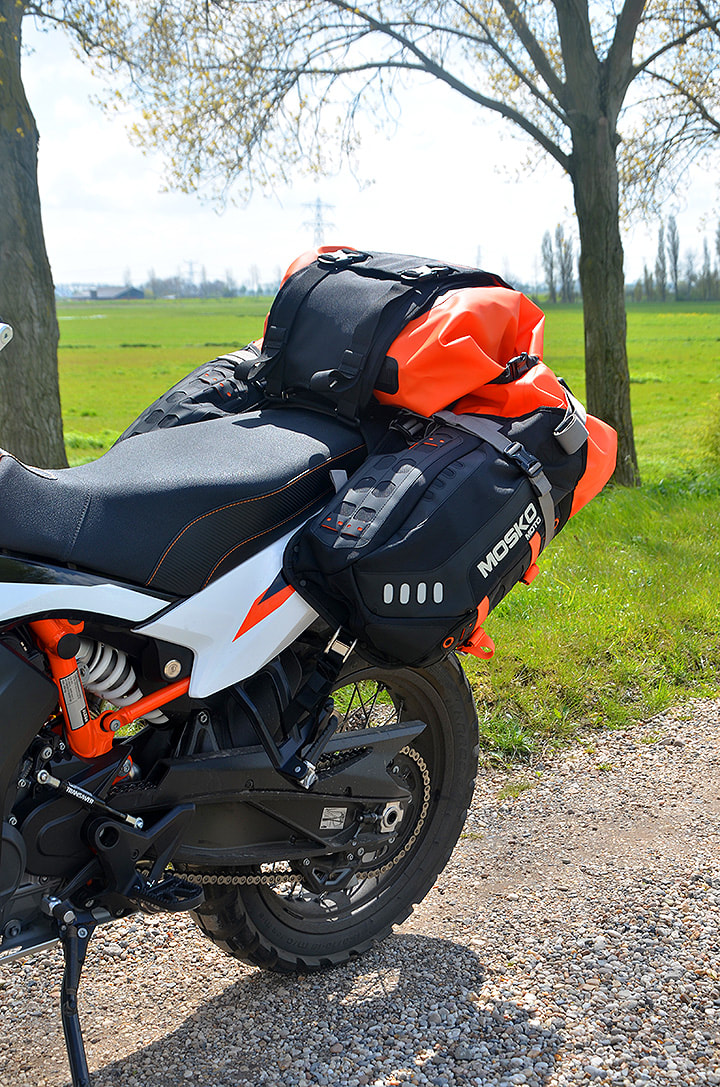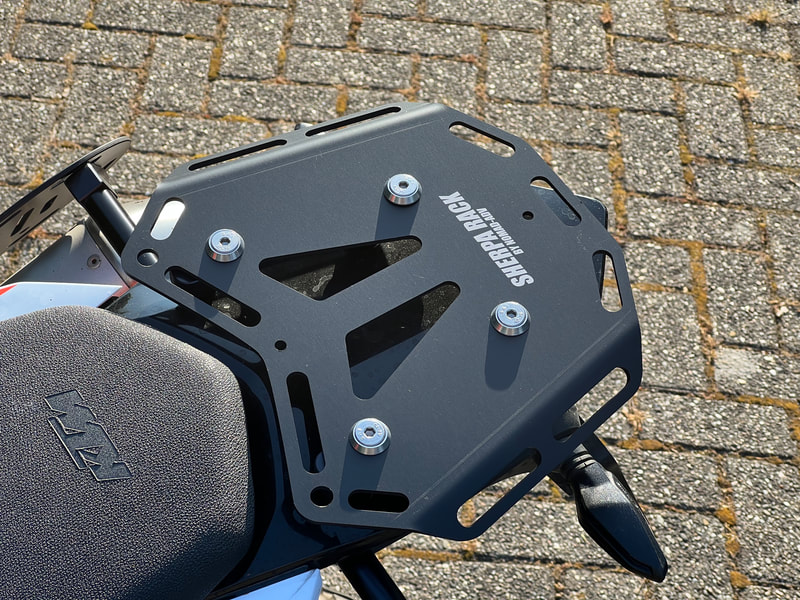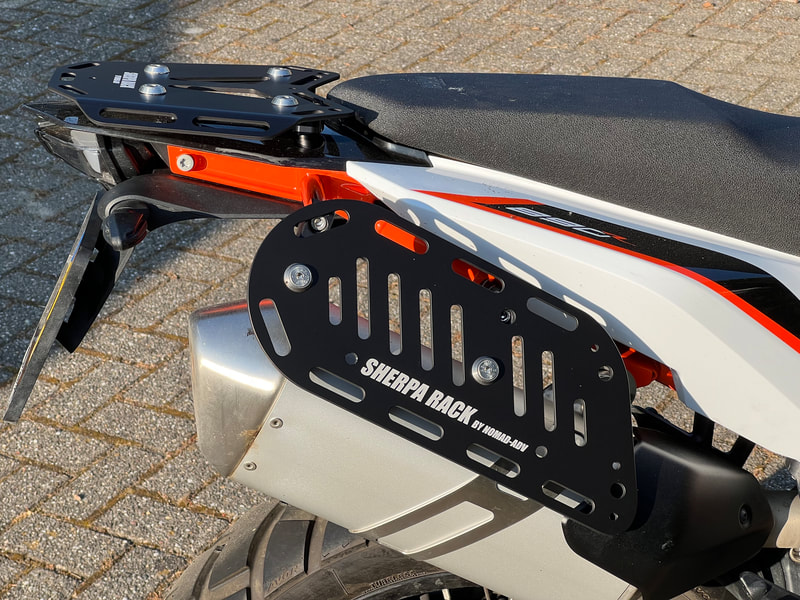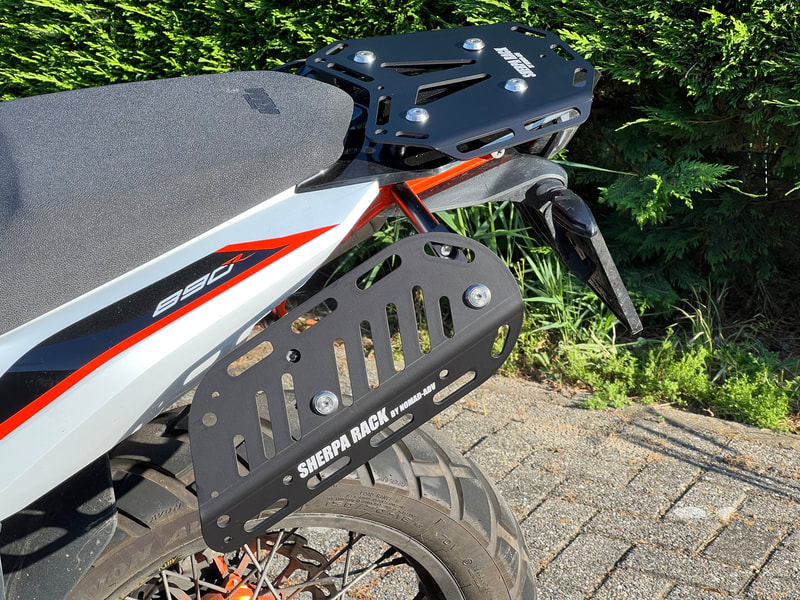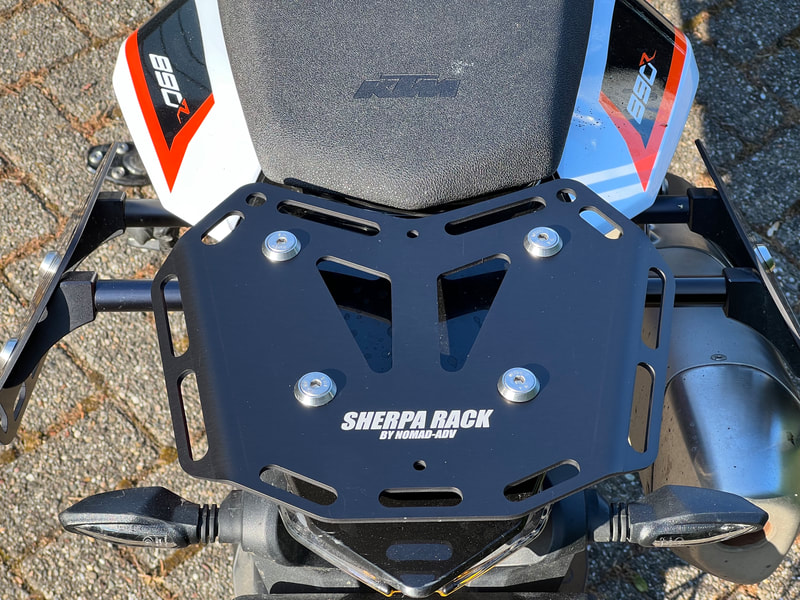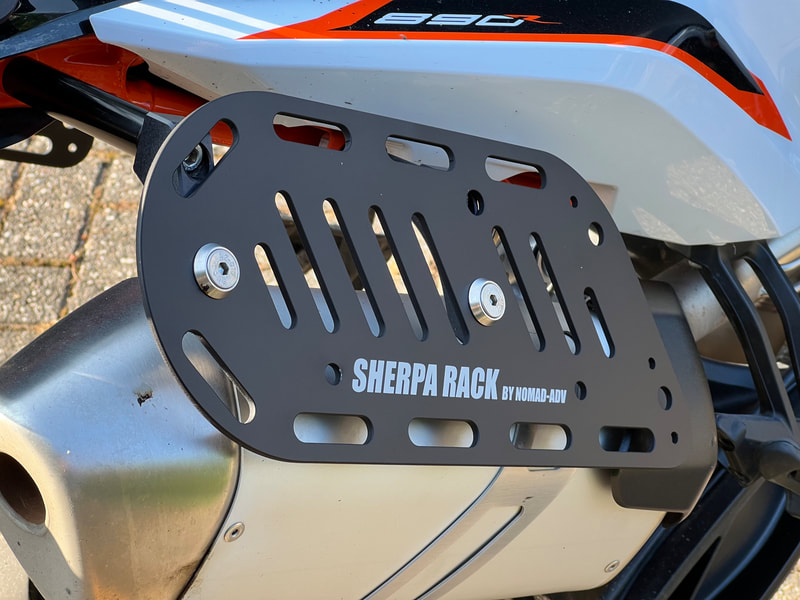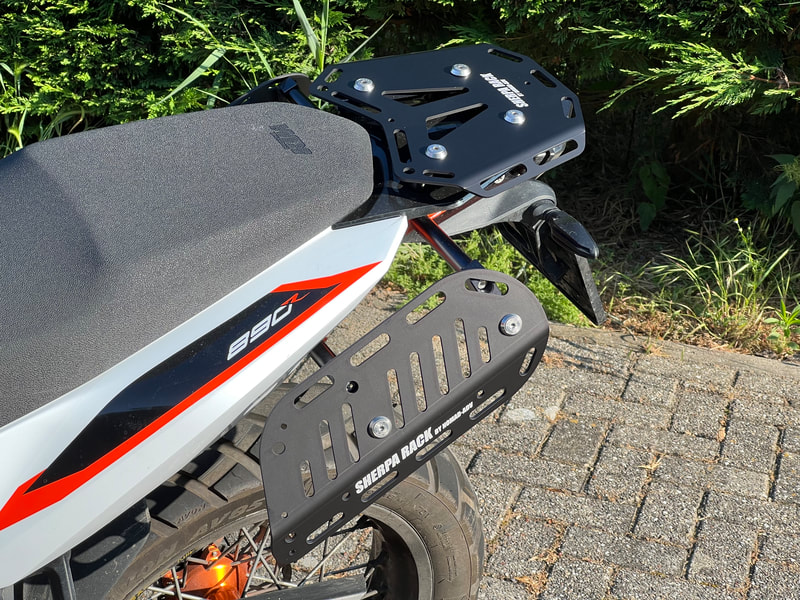KTM 790/890 Rear and side luggage racks
SKU:
€145.00
145
335
€145.00 - €335.00
Unavailable
per item
PRICES INCLUDE EUROPEAN TAX, TAX CAN BE DEDUCTED HERE Fits KTM 790 ADV and KTM 890 ADV 2019 onwards
Specially designed to work with Mosko Moto
The Nomad-ADV KTM 790/890 Rear and side rack have been specially designed to perfectly fit the Mosko Moto Reckless 80 bags
The Nomad KTM 790/890 luggage rack
|
The KTM 790/890 is great for covering long distances, both on and off-road. It’s the first bike we tried that actually carries its weight well, because let’s be honest it is on the heavy side. The first adventure bike on which you can both cover the long distances on bitumen and you can actually properly take off-road too. It’s not an EXC or a 690 but where most big adventure bikes become a handful in even the mildest offroad conditions, the 790 and 890 handle it well. The 790/890 has a beautiful narrow rear end too, all the right ingredients for a great off-road capable long distance adventure bike.
While you like to take luggage with you, it would be a waste to change a great bike into a Frankenstein dump truck by adding 20kg of dead weight in scaffolding and boxes. Because no matter what the salesman might tell you, adding dead weight means you need to add more spring power and damping to compensate, while it will also be harder to get it back up on the rebound. The luggage system is also mounted all the way at the back, to allow for a passenger and sticking out on either side to allow for a passenger. Yet the scaffolding option was the only one available… but not anymore! |
|
The idea behind the side luggage racks
We made a luggage rack specifically for throw-over enduro and horseshoe type bags. These use straps or a base which go over the seat and thereby put the weight on the seat or the rear rack, which is just where you want it and why they won’t affect the handling like hard or traditional bags do as the weight is centralised on the bike rather than hanging from the side of it. It also means we can make a much lighter rack as it merely needs to keep the bags away from your exhaust and back wheel and prevent fore, aft and side ways motion. The side racks don’t need to take the full weight of your luggage and thus don’t need to be stupidly heavy, which means your bike can stay as light as possible while you still have strong side racks. |
|
The strongest rear rack, we believe
Contrary to side racks, the rear rack needs to be able to carry a lot of weight, yet we don’t want a solid slab of aluminium on the back either. That’s why we’ve machined two supports under the rear luggage plate, which are sturdy and angled to follow the shape of the subframe. There is in effect 14mm of material where it counts! The rear luggage plate on top of it is angled at the sides for better support of your bag, while the slots in the plate are big enough to slide buckles through. You will notice that we haven’t gone overboard with all sorts of holes and slots in the luggage plate, as its function is to support your bag rather than damage it. All corners and edges are rounded or chamfered to avoid damage to bags and straps. |
Features
|
|
|
Why a side luggage rack for so called rack-less enduro saddlebags and horse-shoe bags?
The 790/890 is the perfect bike for enduro saddlebags or a horseshoe type enduro bag, something like the Mosko Moto for instance. You’ll keep all the advantages of a proper off-road capable adventure bike and yet can take your luggage to that beautiful spot in the middle of nowhere. The rackless type bags have three issues though. Fitting them without a rack scratches the bike, and even more so when inevitably sand gets in between the bag and your bike, creating nature’s perfect sander. Secondly, they melt when they touch the exhaust, damaging your bags and leaving a molten plastic layer on your exhaust (and heat shields work just as well as a frying pan on a hotplate). Thirdly, they’re hard to keep in place when you take the rough tracks and have some fun. That’s why we’ve made a rack especially for rack-less bags. With our side racks you can strap the bags down quickly and properly, keep them away from the exhaust and they won’t sand through the plastics. The bags won’t move and with the Mosko Moto type bags you can leave the harness in place and thus remove your luggage at the end of the day just as easily. Why an engineered rack in aluminium rather than steel? Our side and rear racks are not made from a bunch of rusting scaffolding pipes which are then bend and bashed until they reasonably fit(!) and are subsequently welded together, which creates even more tension and fitment issues. A hammer and crow bar are pretty commonly needed to make them fit… Instead our racks are machined from specific grades of aluminium and then anodised. They don’t rust and as we machine all our mounts from billet we don’t need to force anything into shape. Machining allows us to work with tolerances of less than 0.01 mm (less than 0.0004 of an inch) and as we don’t weld anything there are no tensions and/or weak spots. Our racks don’t need to be mangled into shape to make them fit as they have build in adjustment options to compensate for motorcycle production tolerances, so they fit. Anodising them means the aluminium, which is a grade that’s not really affected by corrosion anyway, is further protected by a layer which is etched in the aluminum rather than by a thin layer of paint over it. Yet if you want them painted then anodised aluminium can be powder coated without a problem, giving you a triple protected rack. Machining and bolting has another advantage too: we can send them in flat-pack style which means little to no chance of them bending while in transport, while transport costs are lower too. Easy to fit, easy to remove, properly engineered, light weight and tucked away. |
So how strong is it?
We’re known for our over-engineering, and that applies to our machined aluminium racks too. We make our products to be used, and to be used in rugged and remote areas. When we made our first aluminium luggage racks, an industry first we believe, for a KTM EXC and 690 people told us we were mad. Those racks have been through Africa, Australia and South America. They have bounced over the road of bones in Siberia, survived thousands of kilometres of corrugations and crashed multiple times… some were also seriously overloaded.
But, there can be a situation where the impact of a crash on a rack, any rack, will be too big for it. Then something has to give in order to protect what is behind it. At that point our rack will give way, because otherwise the damage would be on the bikes subframe, which is far more costly to fix or replace. It does have to be a serious crash before that happens though. Depending on the type of crash, the plate to which your bag rests to might bend. Because it’s a bolted construction, you can simply unbolt it and straighten it out on a bench. Much easier and better for the bikes subframe than attacking it with a big pipe in an attempt to get it back in shape, as you would have to do with a steel pannier rack.
We’re known for our over-engineering, and that applies to our machined aluminium racks too. We make our products to be used, and to be used in rugged and remote areas. When we made our first aluminium luggage racks, an industry first we believe, for a KTM EXC and 690 people told us we were mad. Those racks have been through Africa, Australia and South America. They have bounced over the road of bones in Siberia, survived thousands of kilometres of corrugations and crashed multiple times… some were also seriously overloaded.
But, there can be a situation where the impact of a crash on a rack, any rack, will be too big for it. Then something has to give in order to protect what is behind it. At that point our rack will give way, because otherwise the damage would be on the bikes subframe, which is far more costly to fix or replace. It does have to be a serious crash before that happens though. Depending on the type of crash, the plate to which your bag rests to might bend. Because it’s a bolted construction, you can simply unbolt it and straighten it out on a bench. Much easier and better for the bikes subframe than attacking it with a big pipe in an attempt to get it back in shape, as you would have to do with a steel pannier rack.

